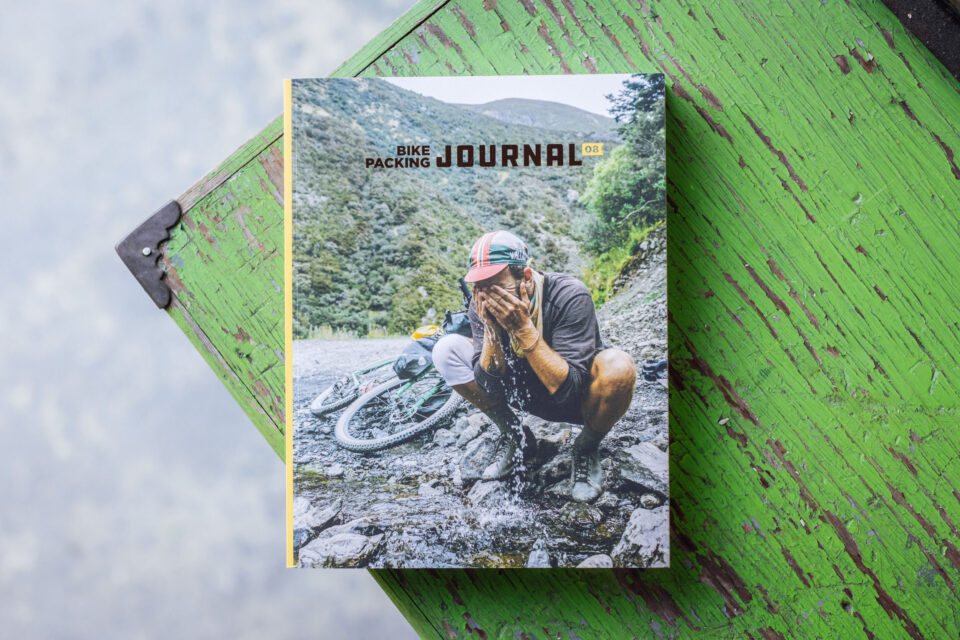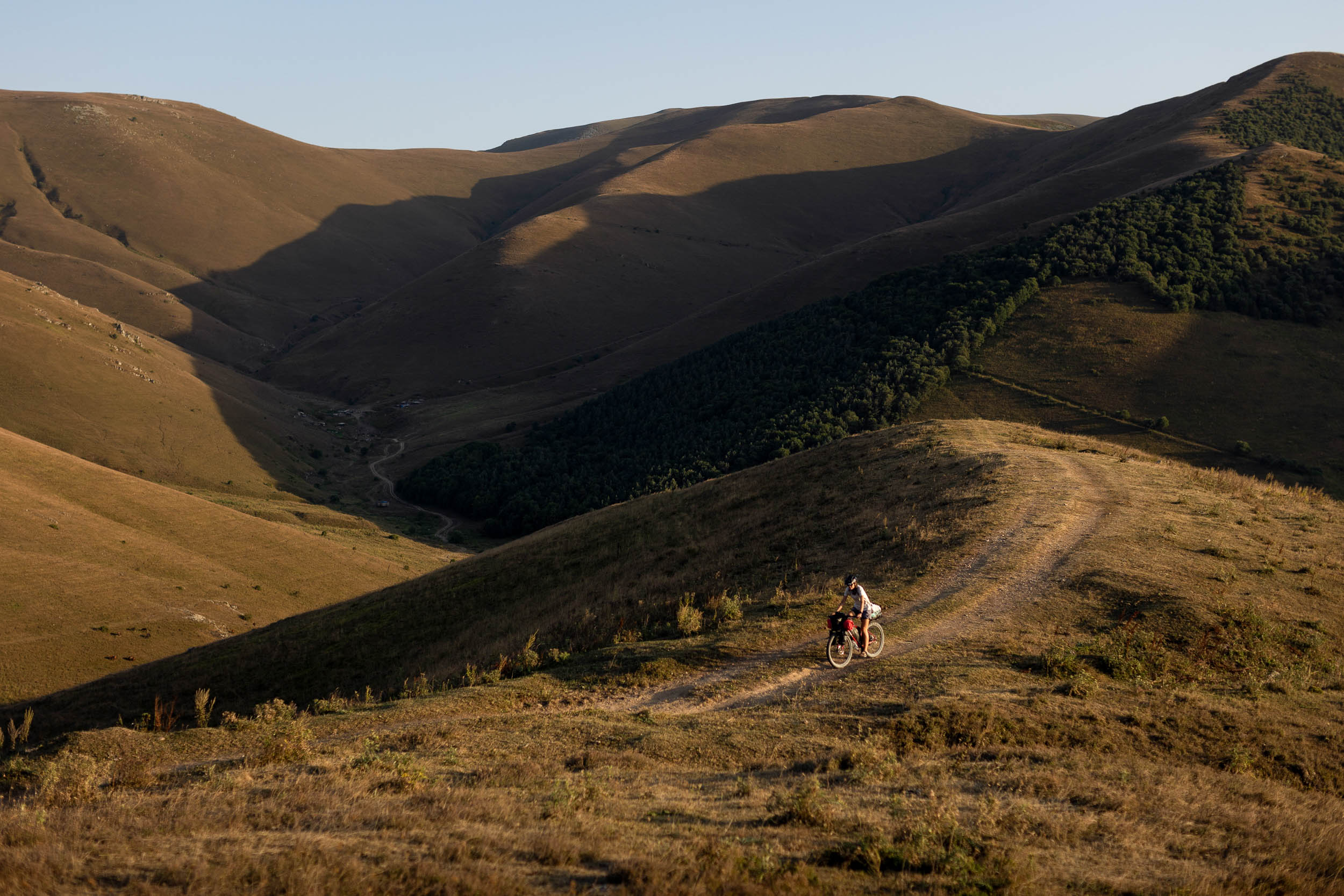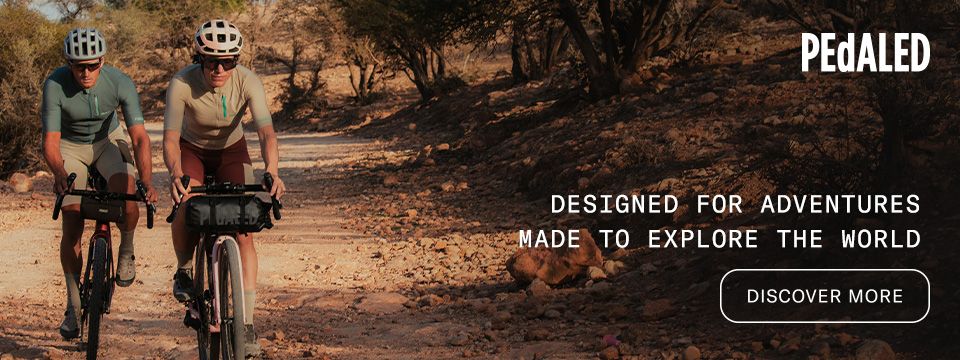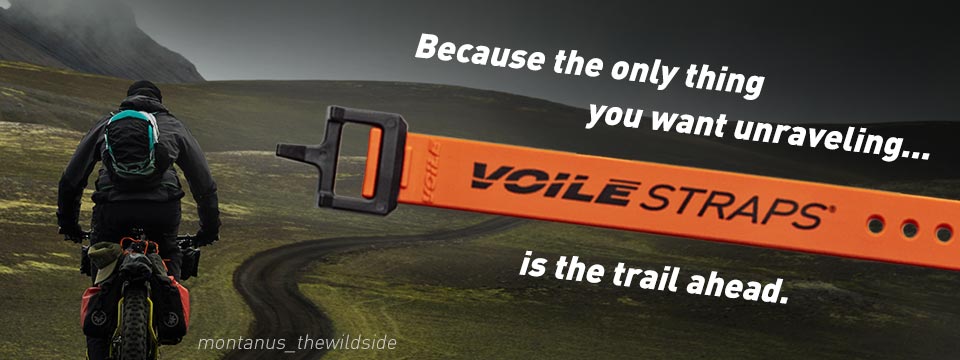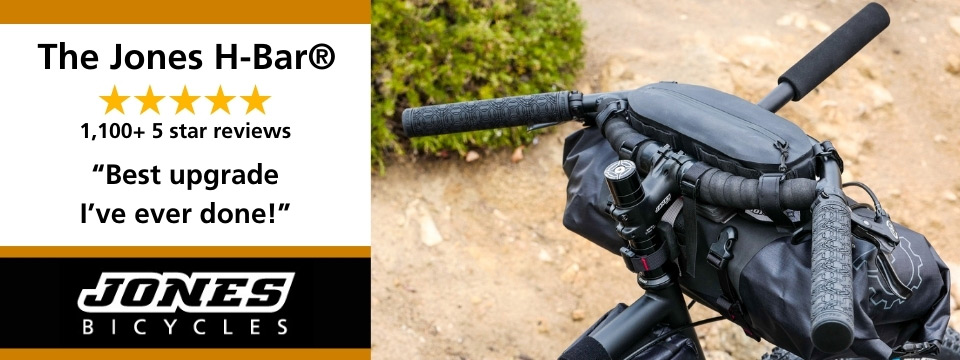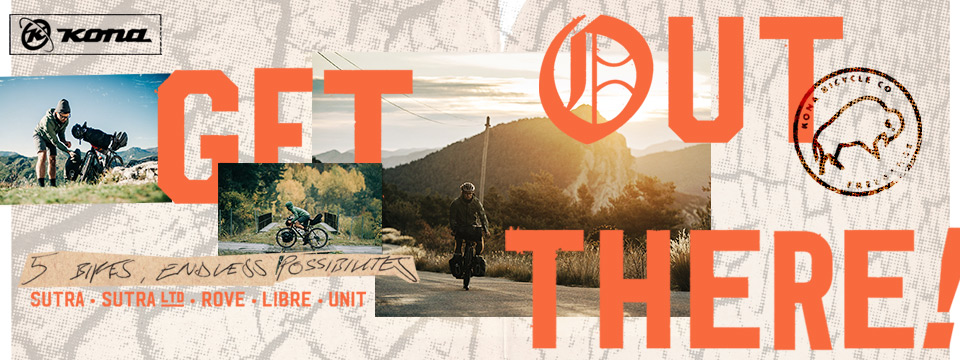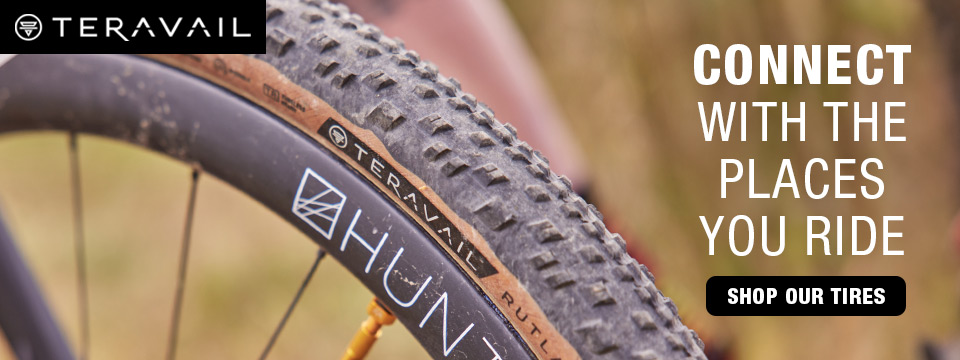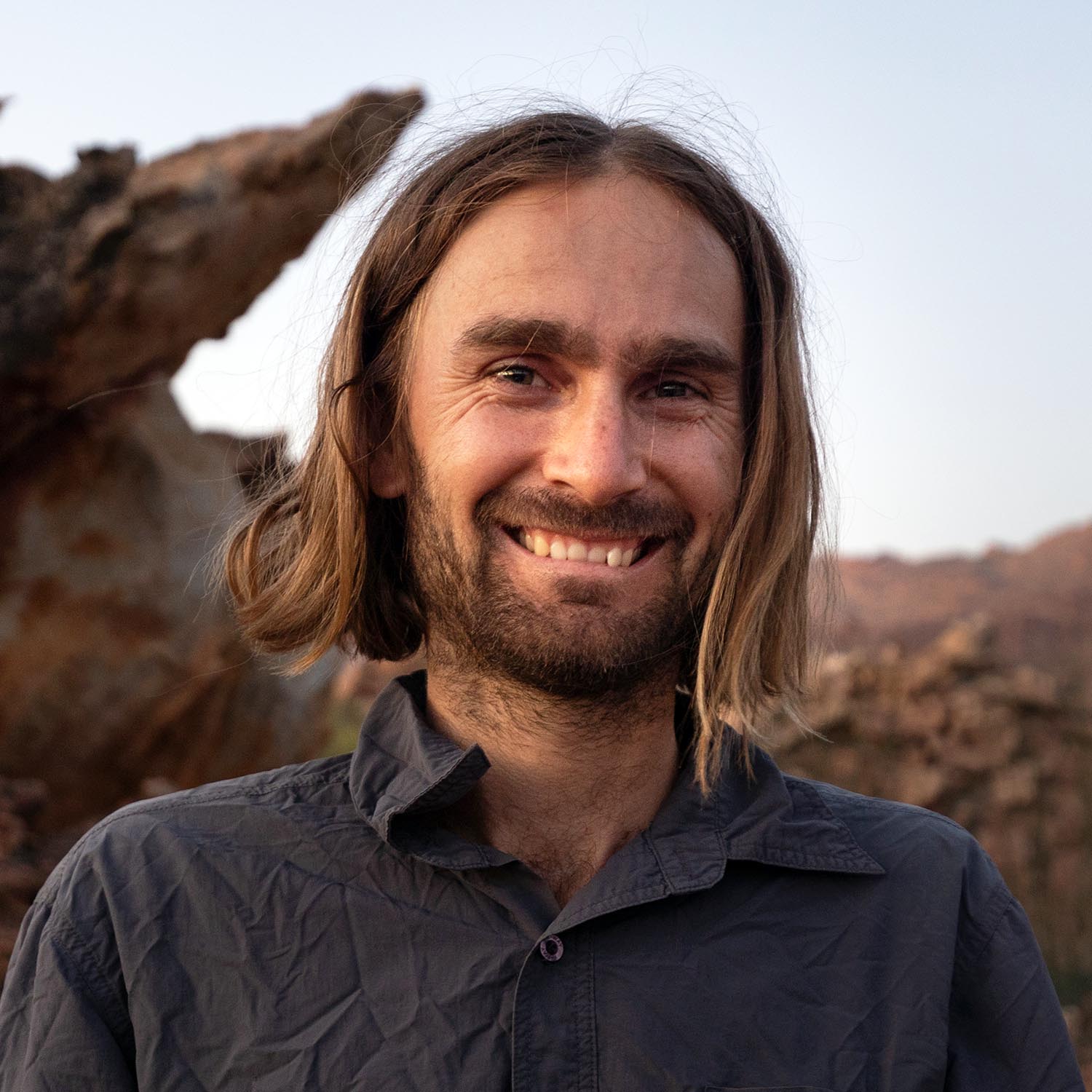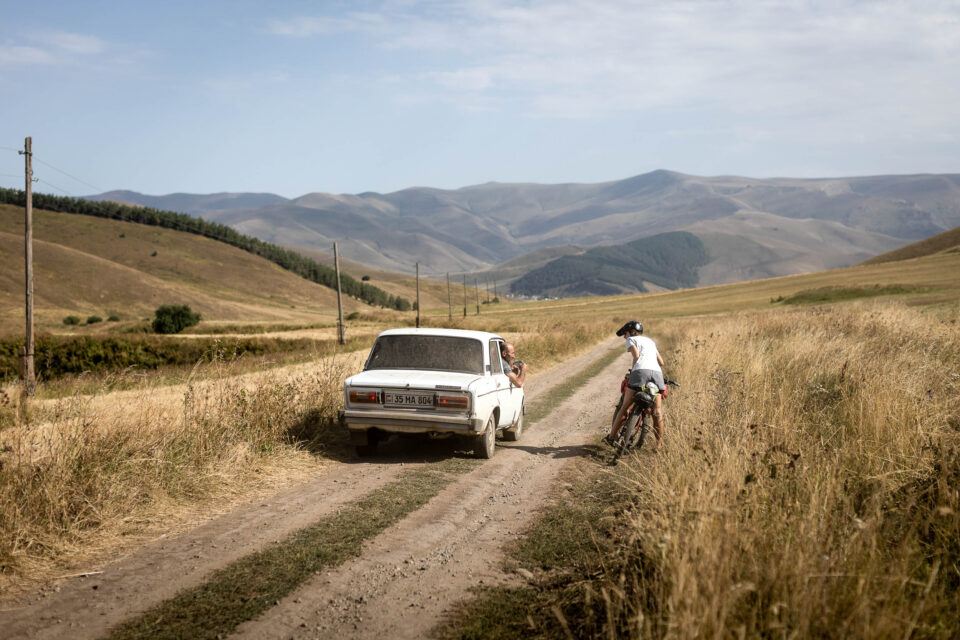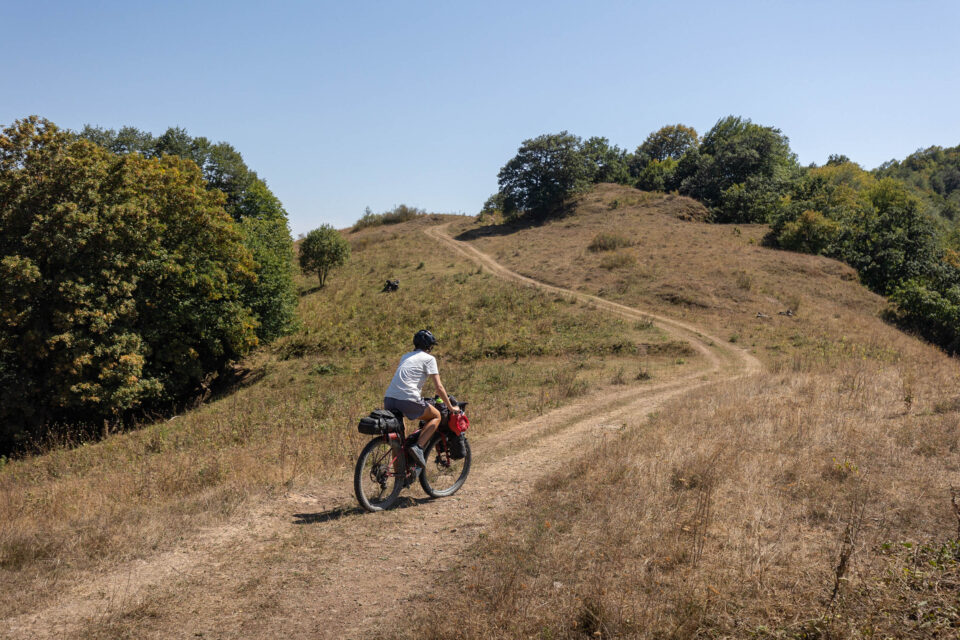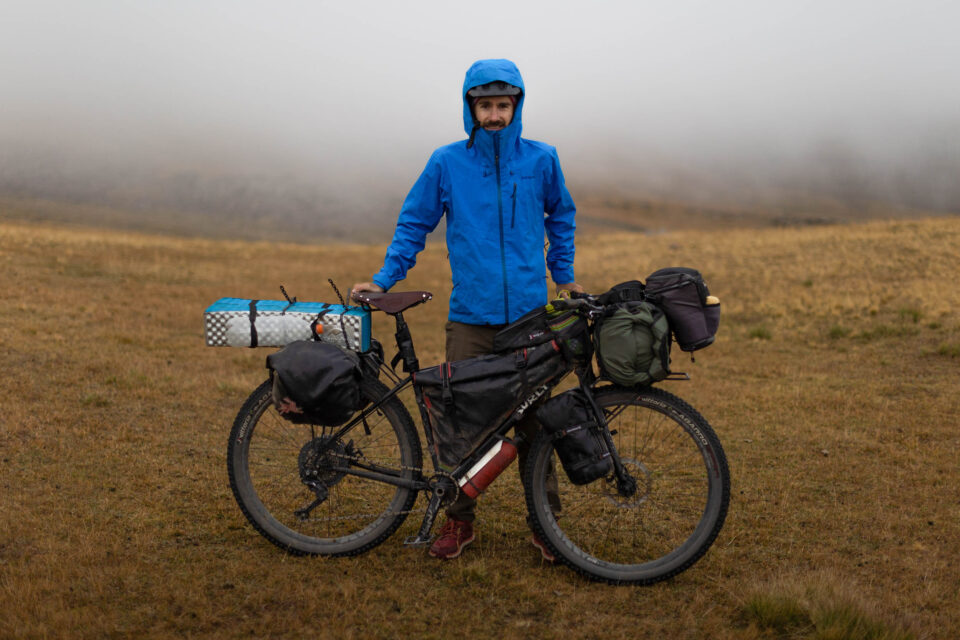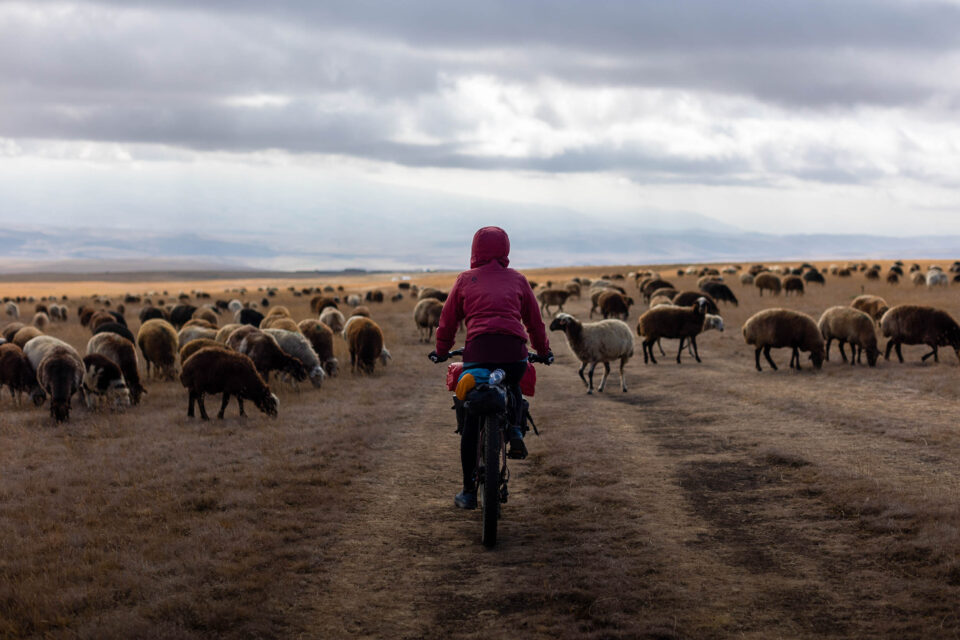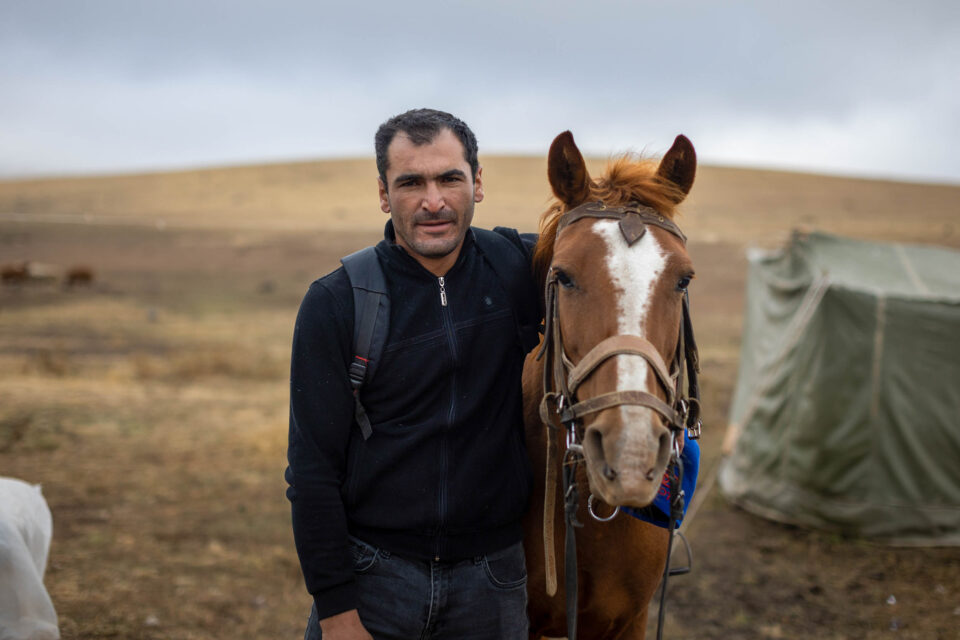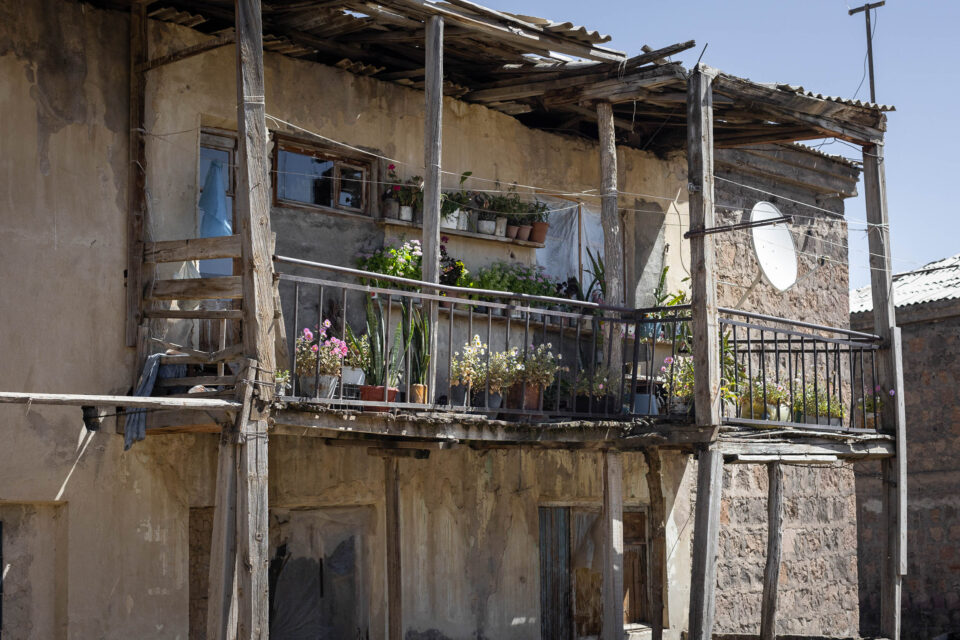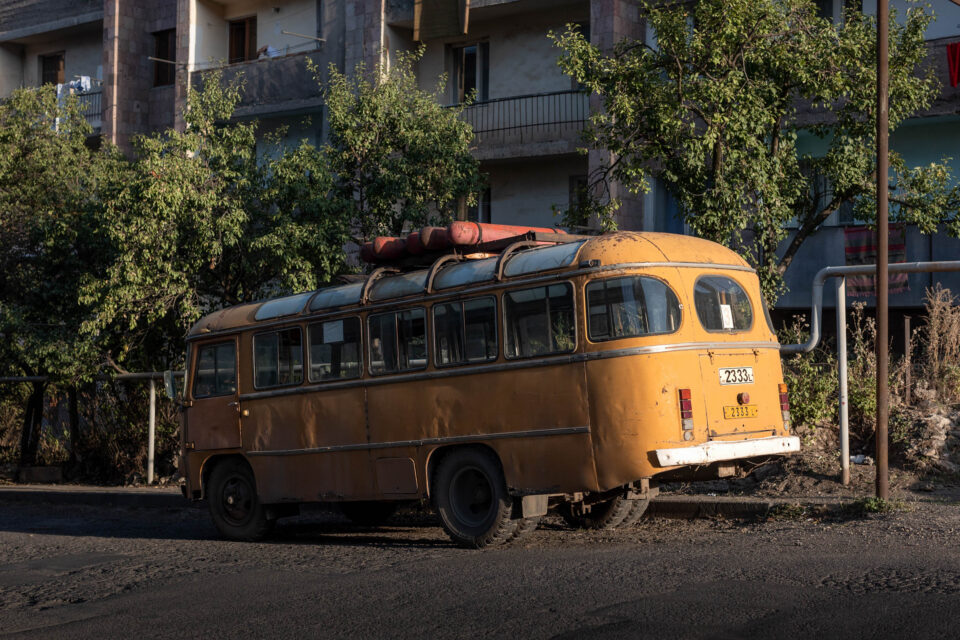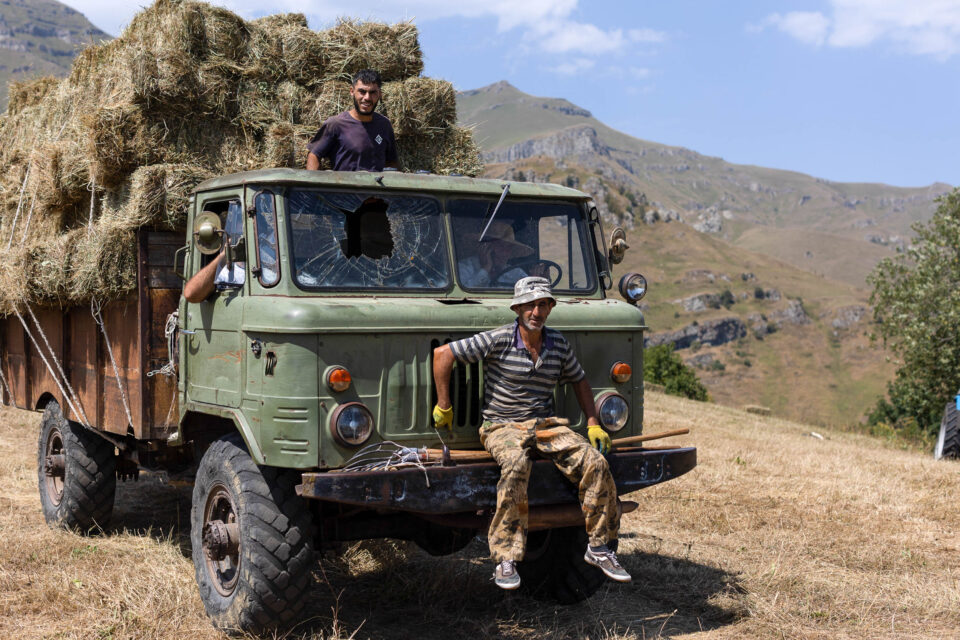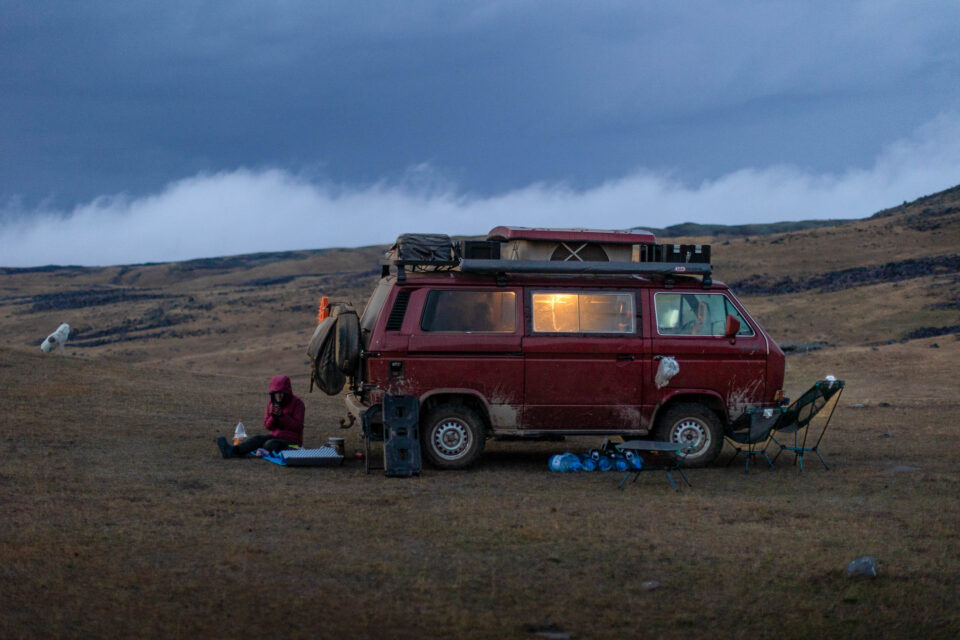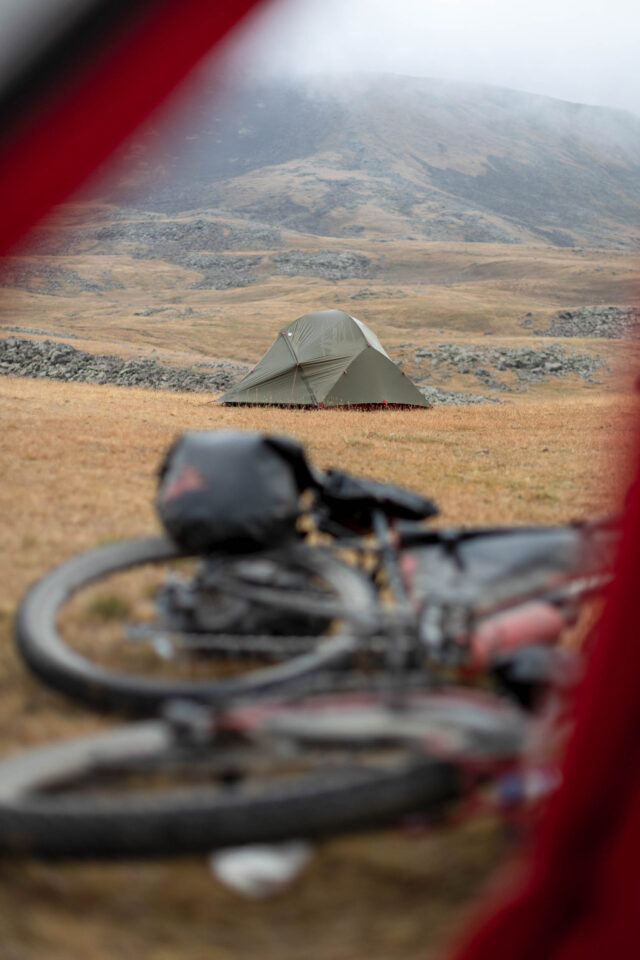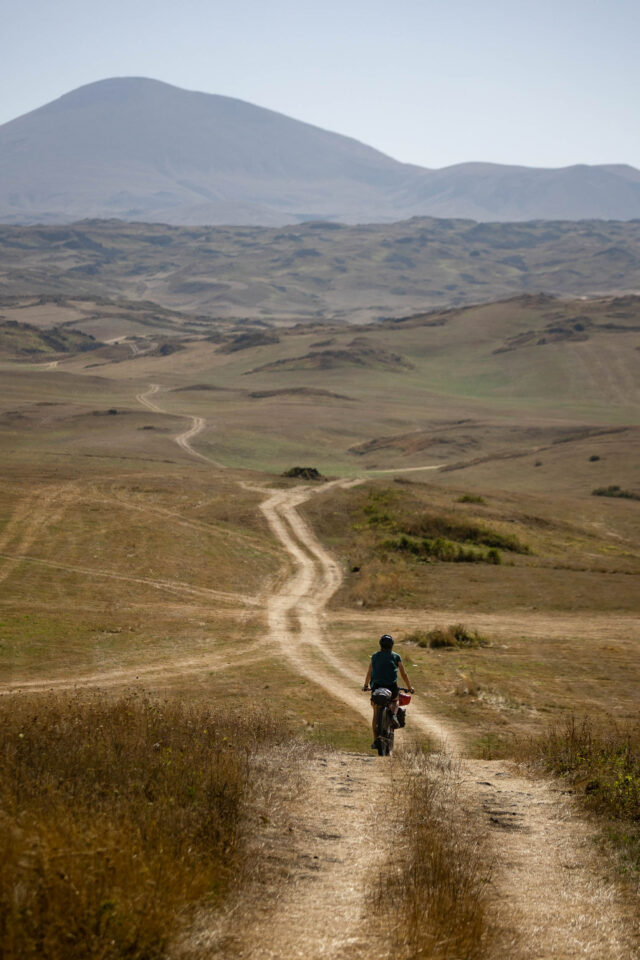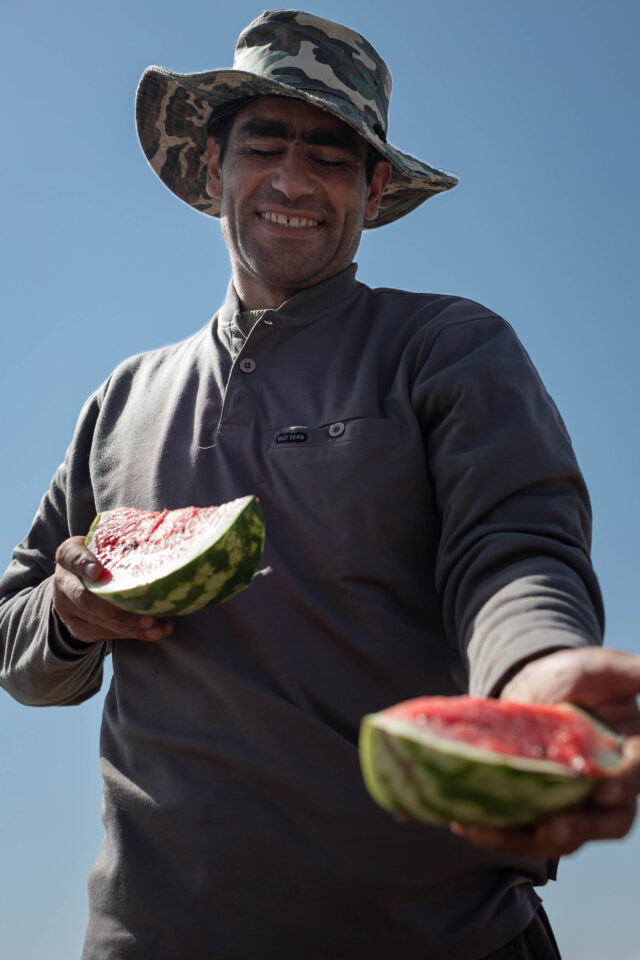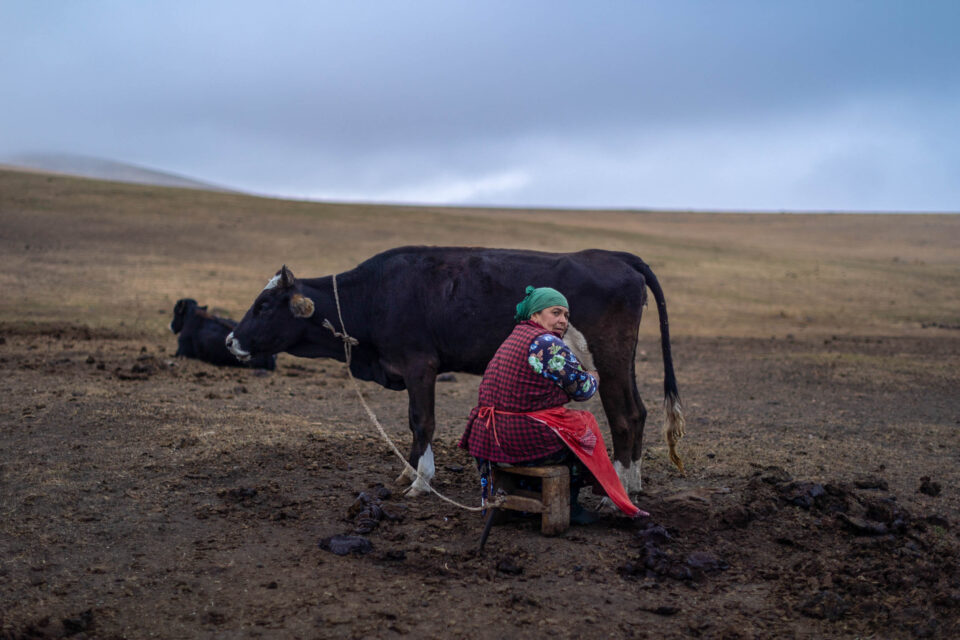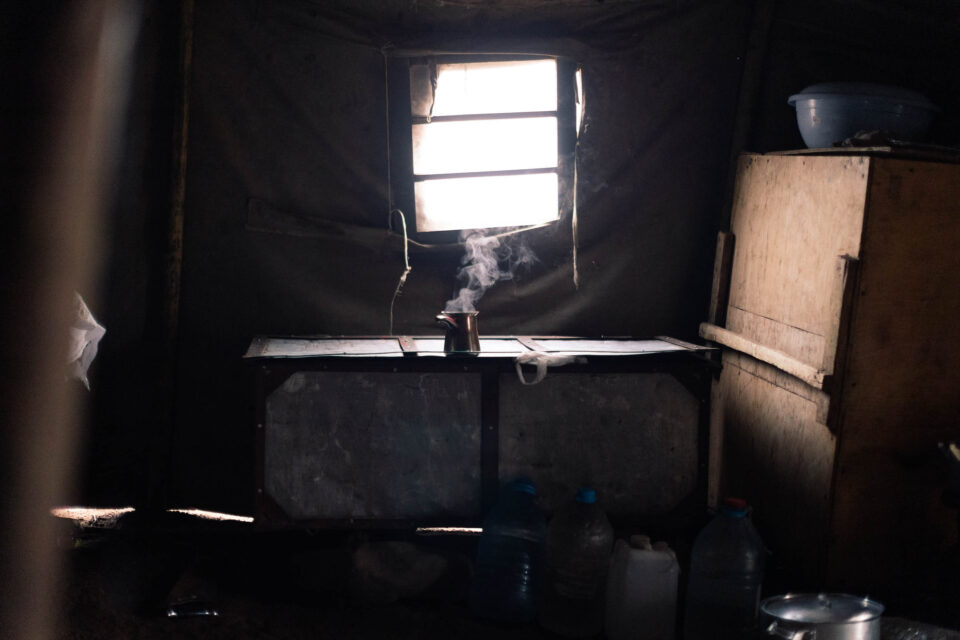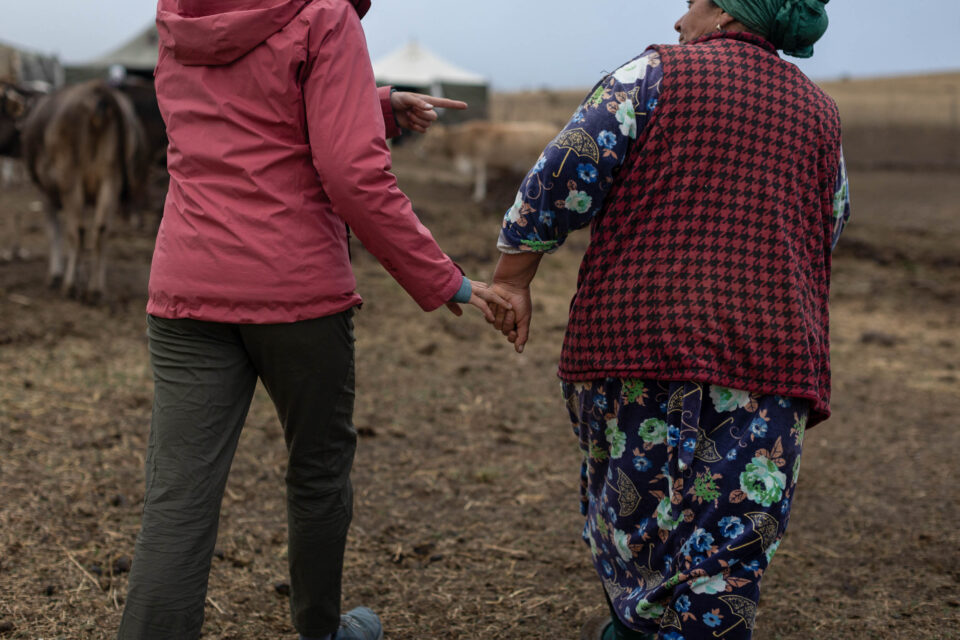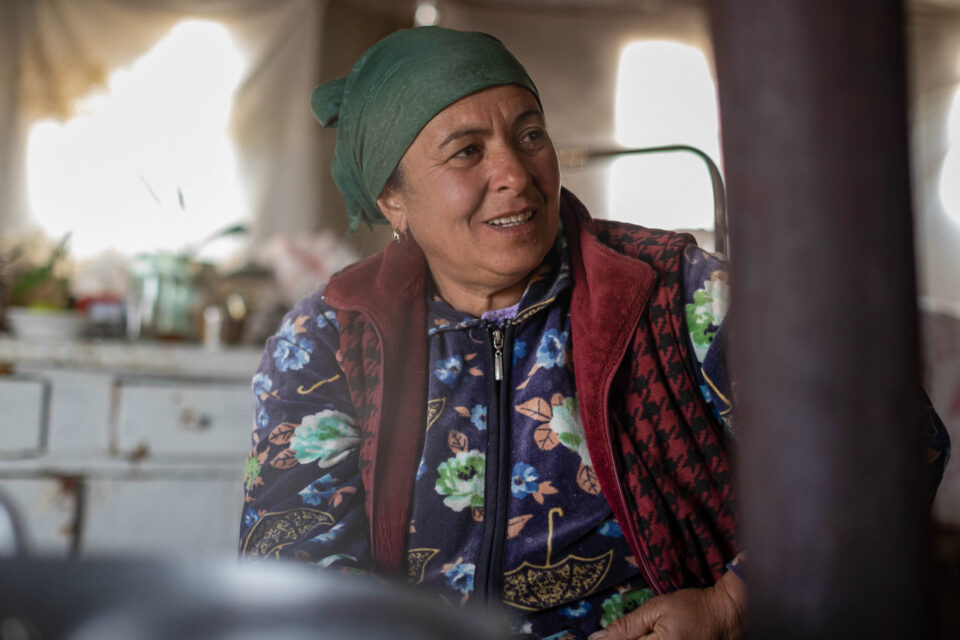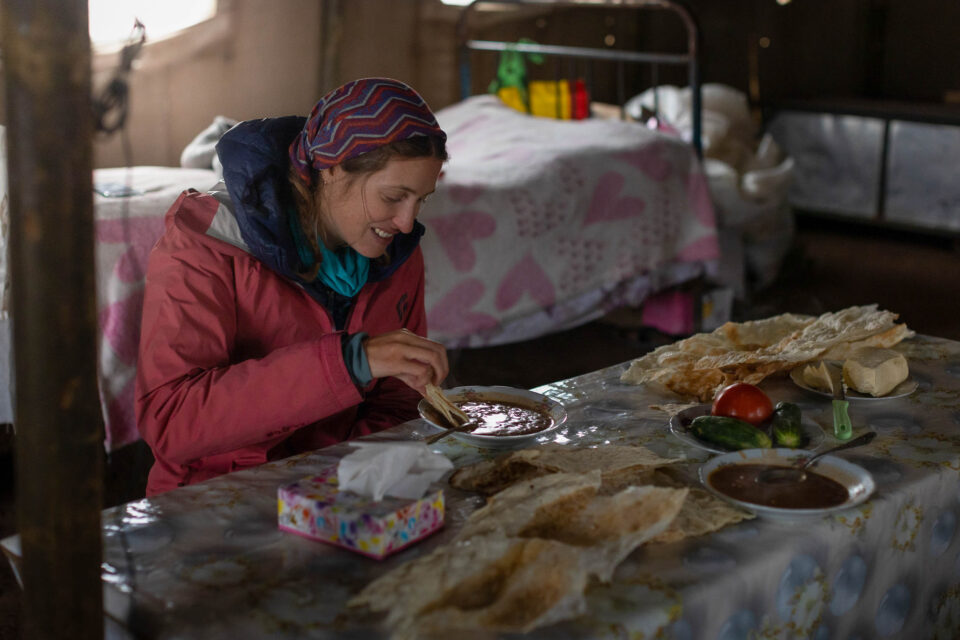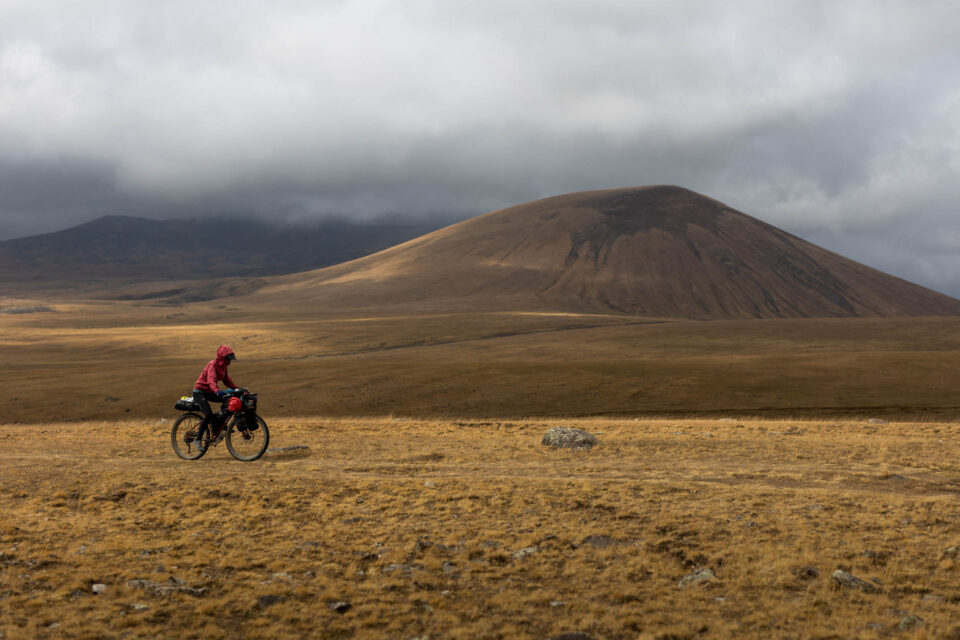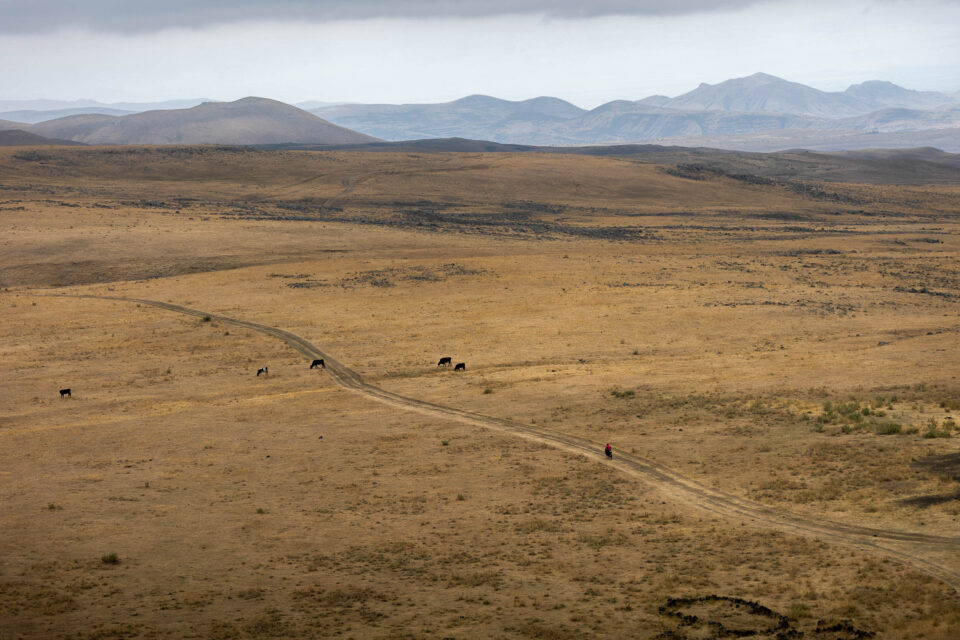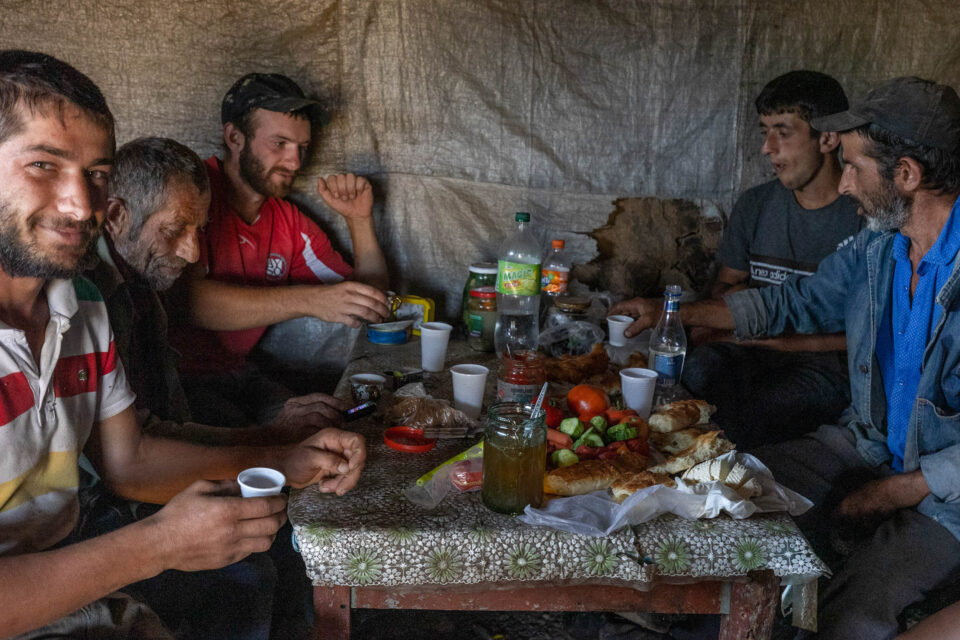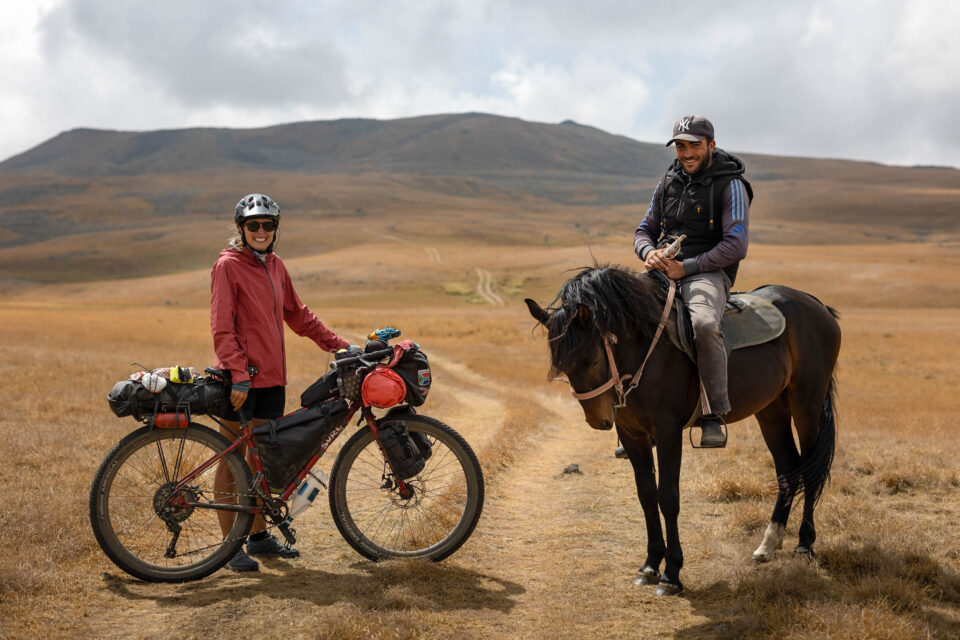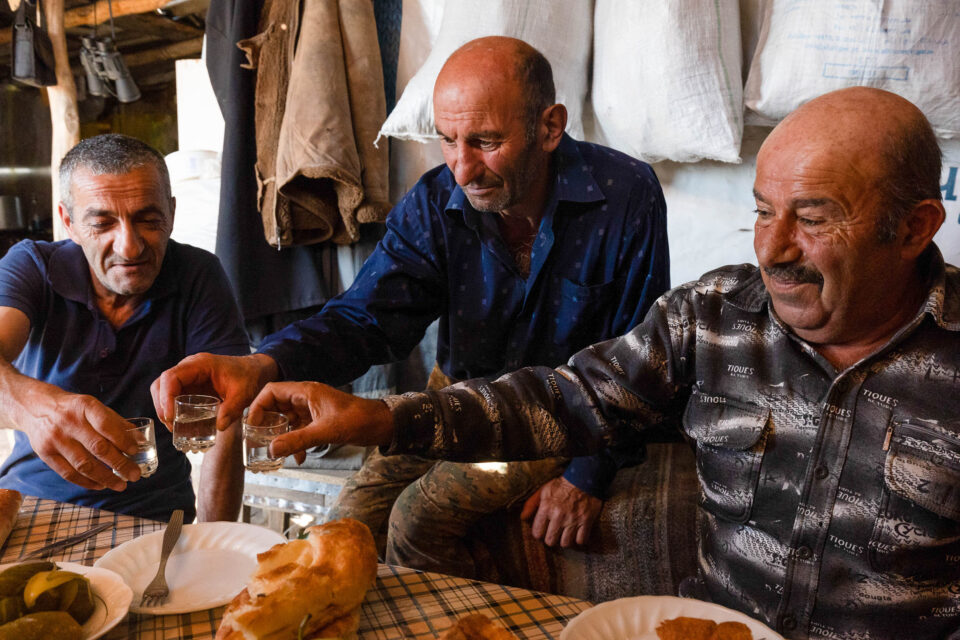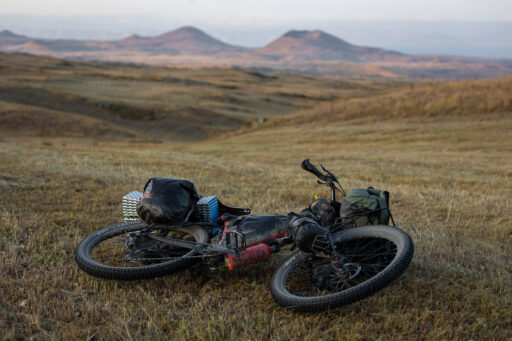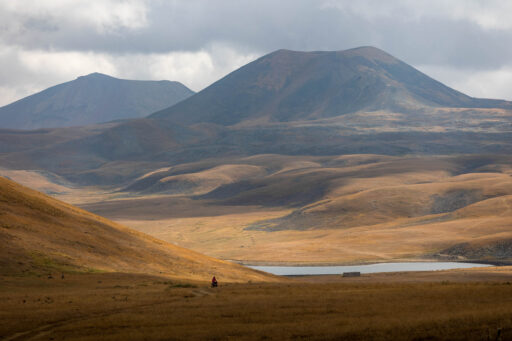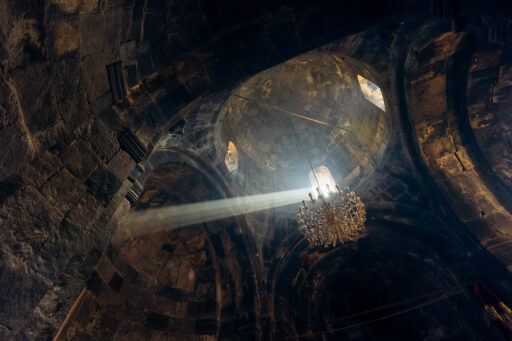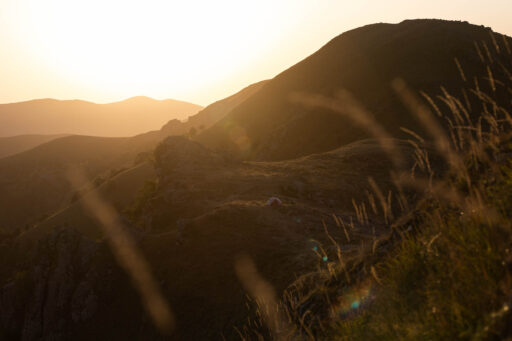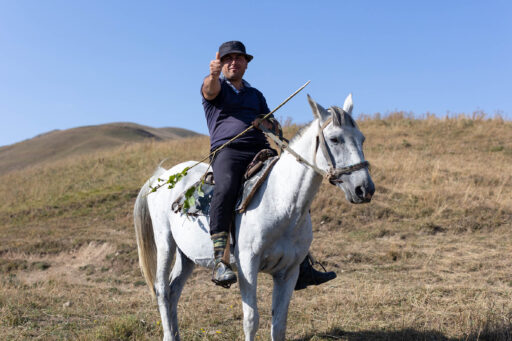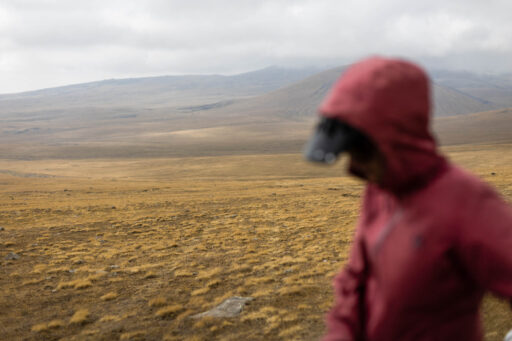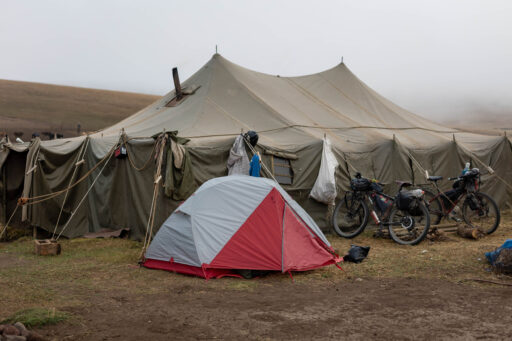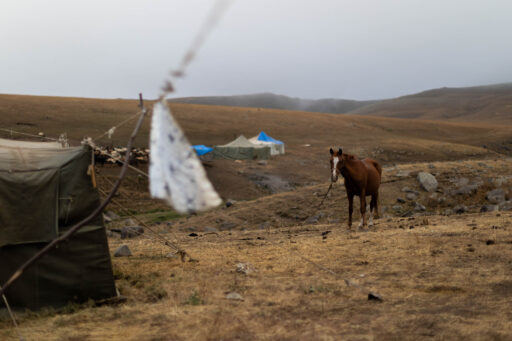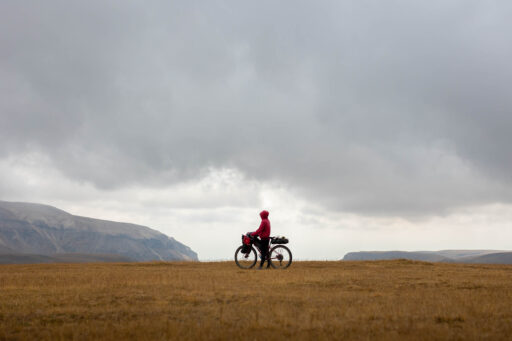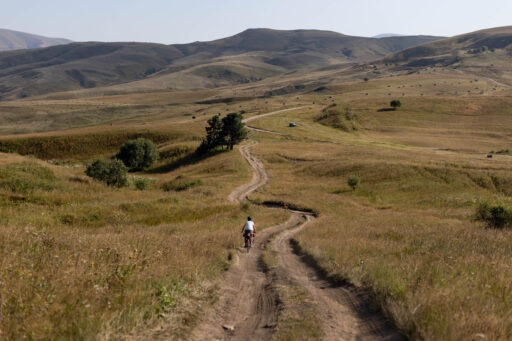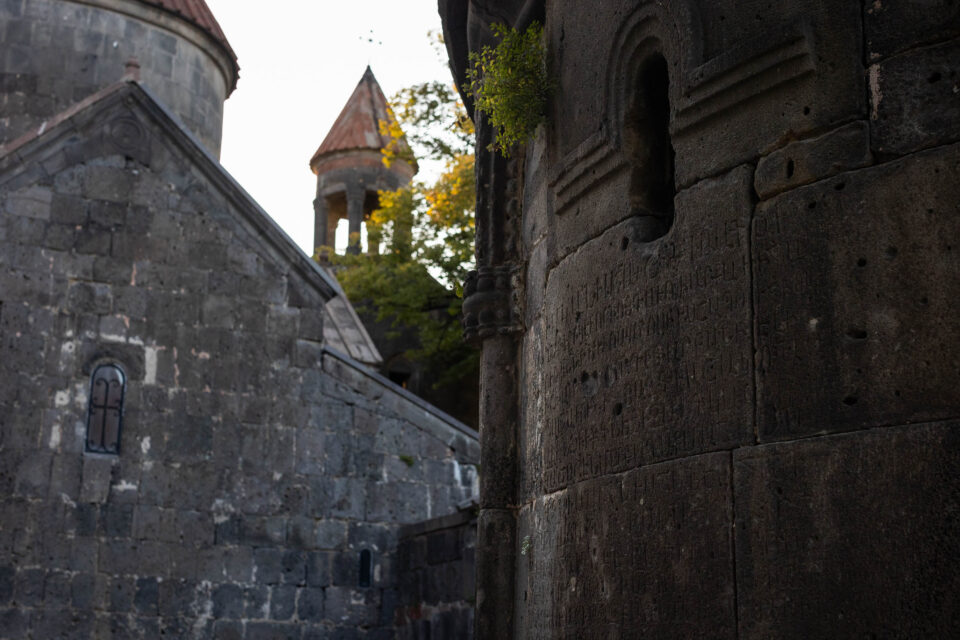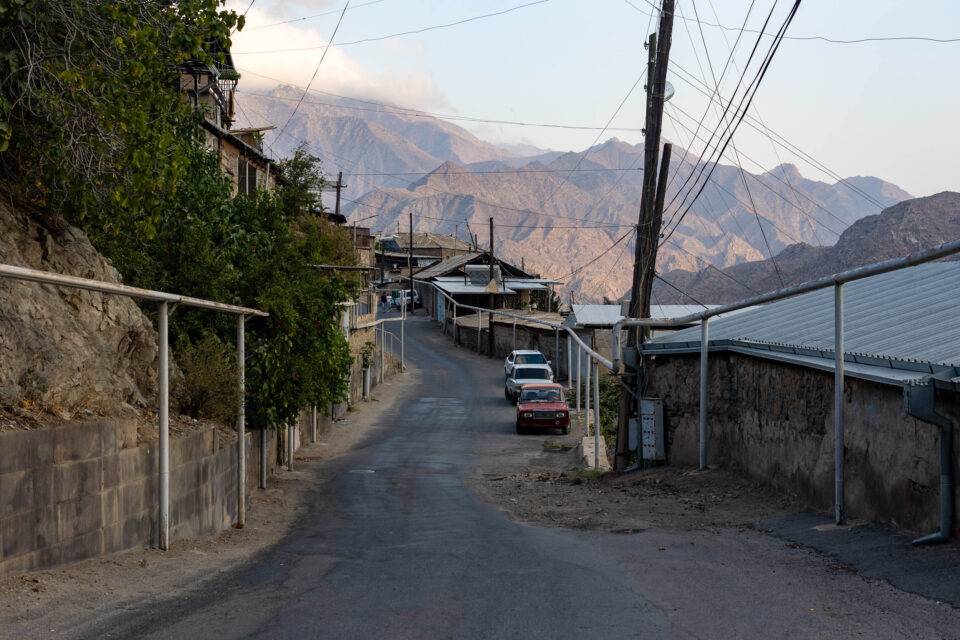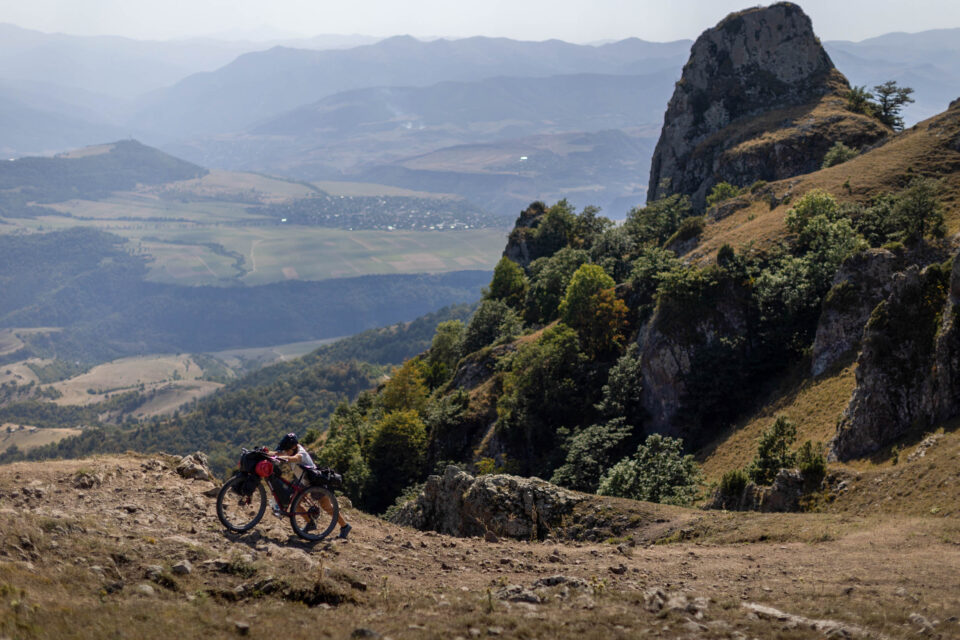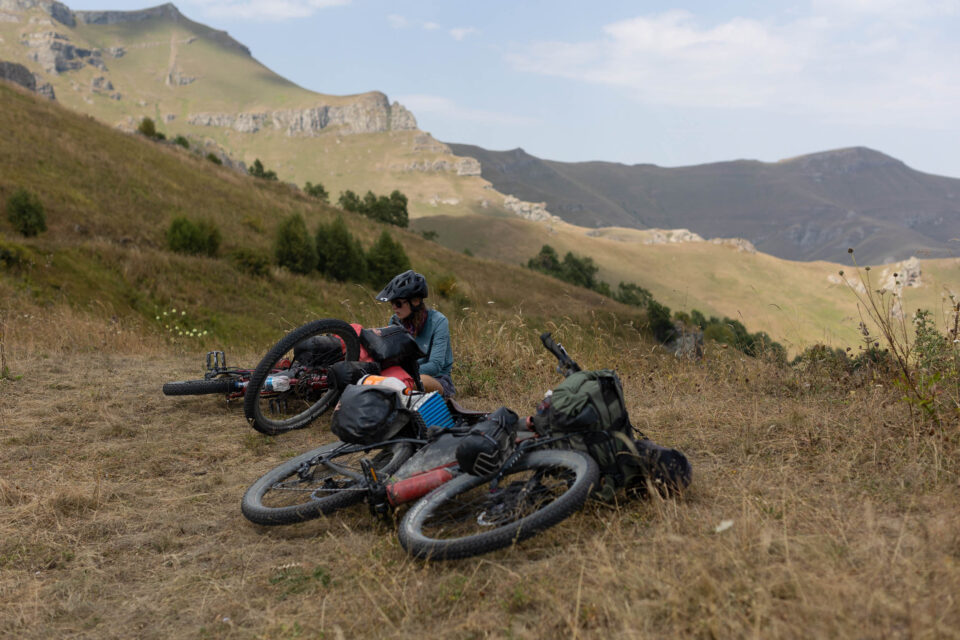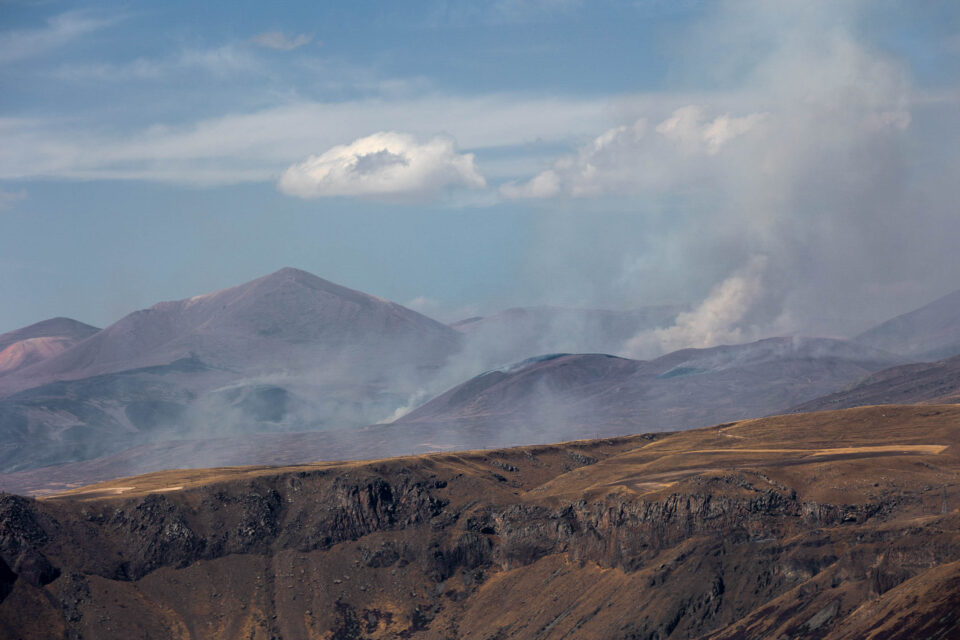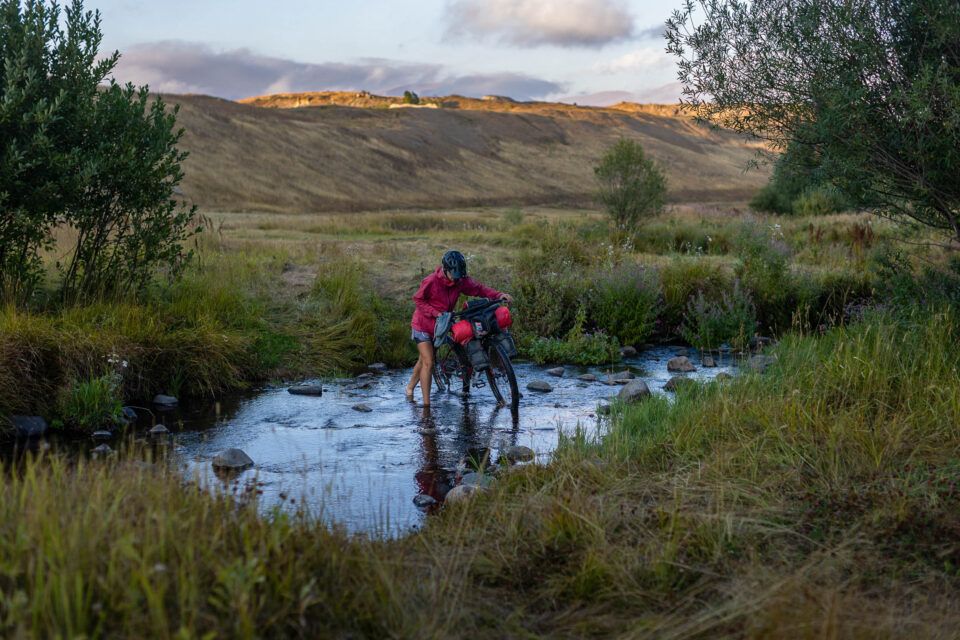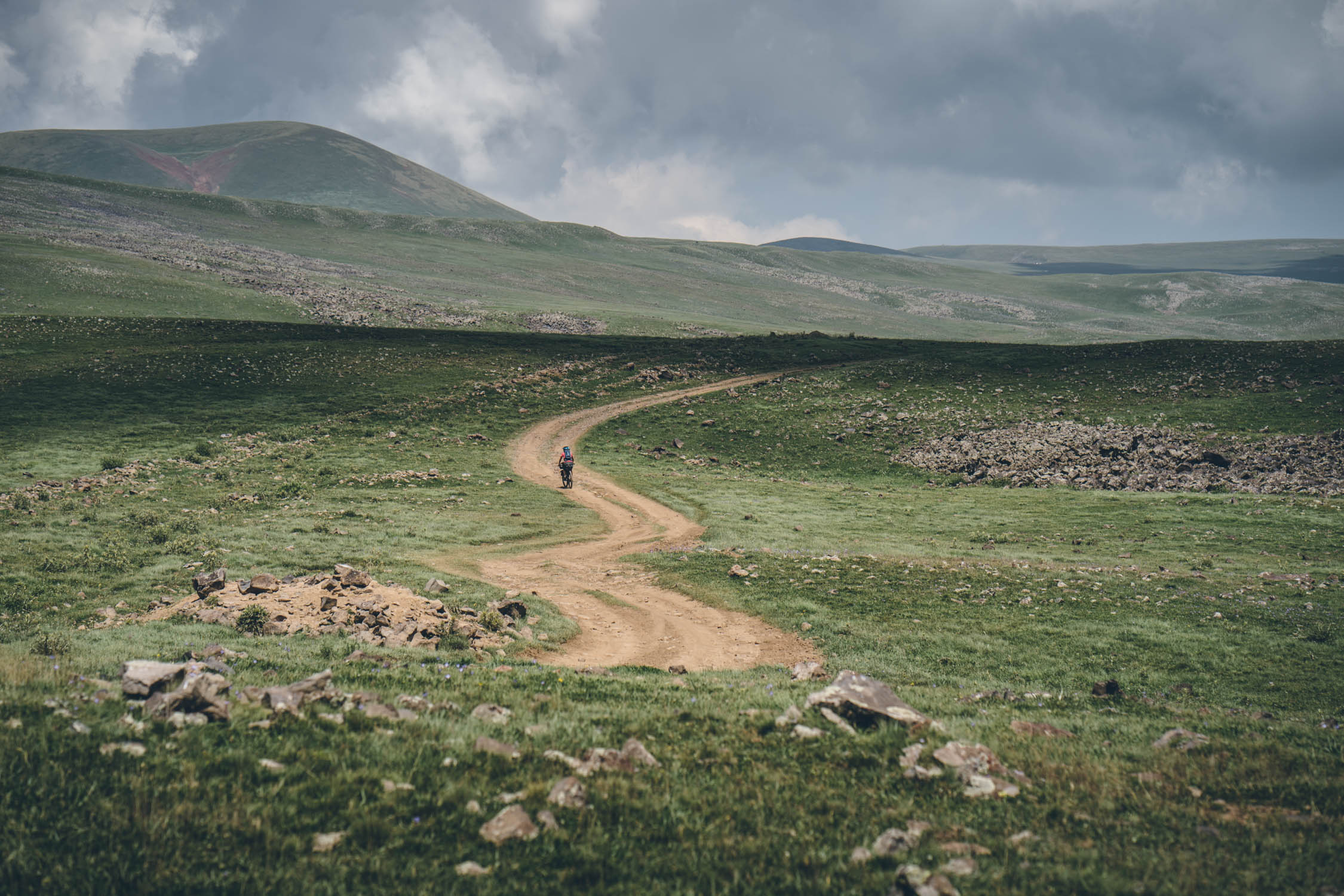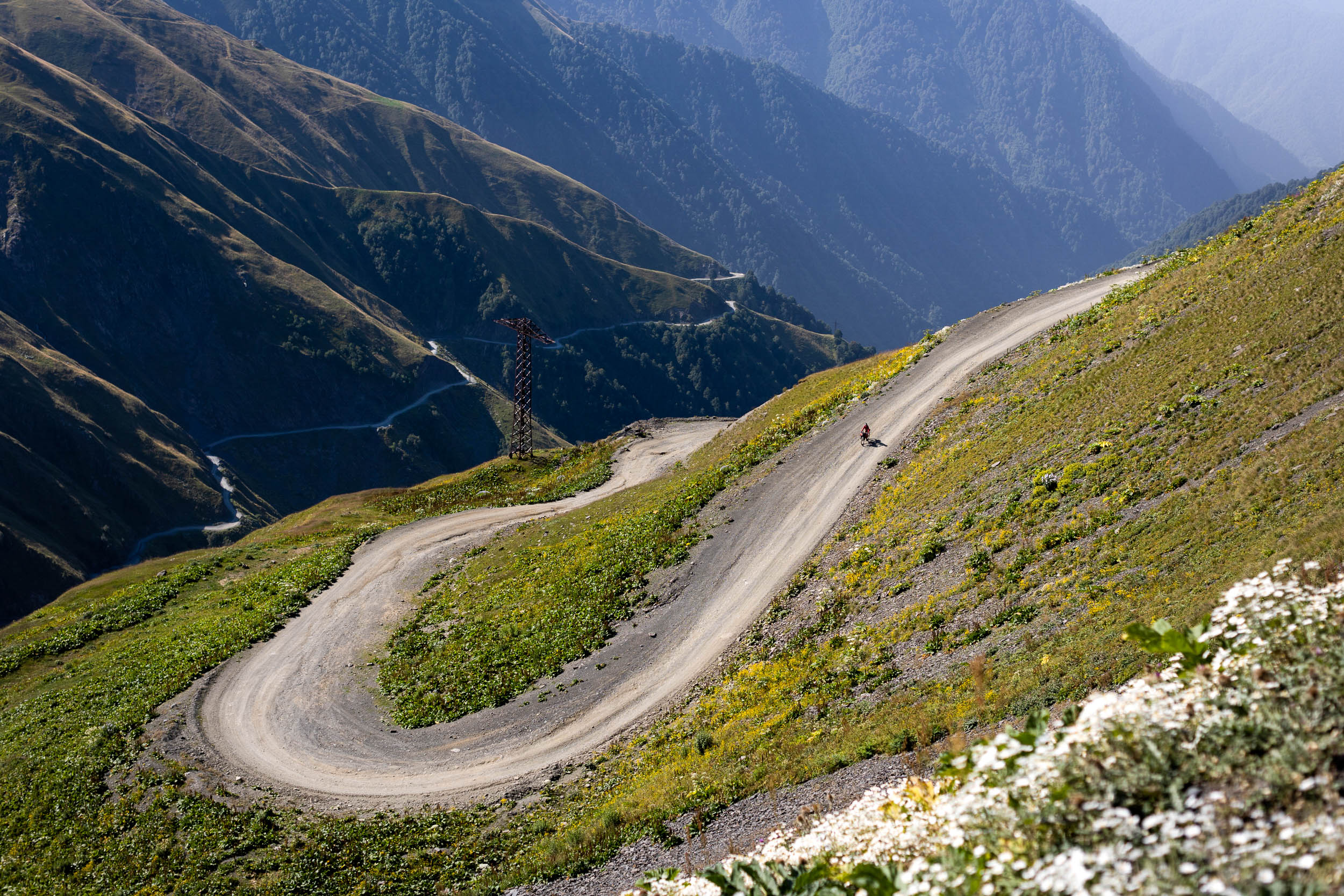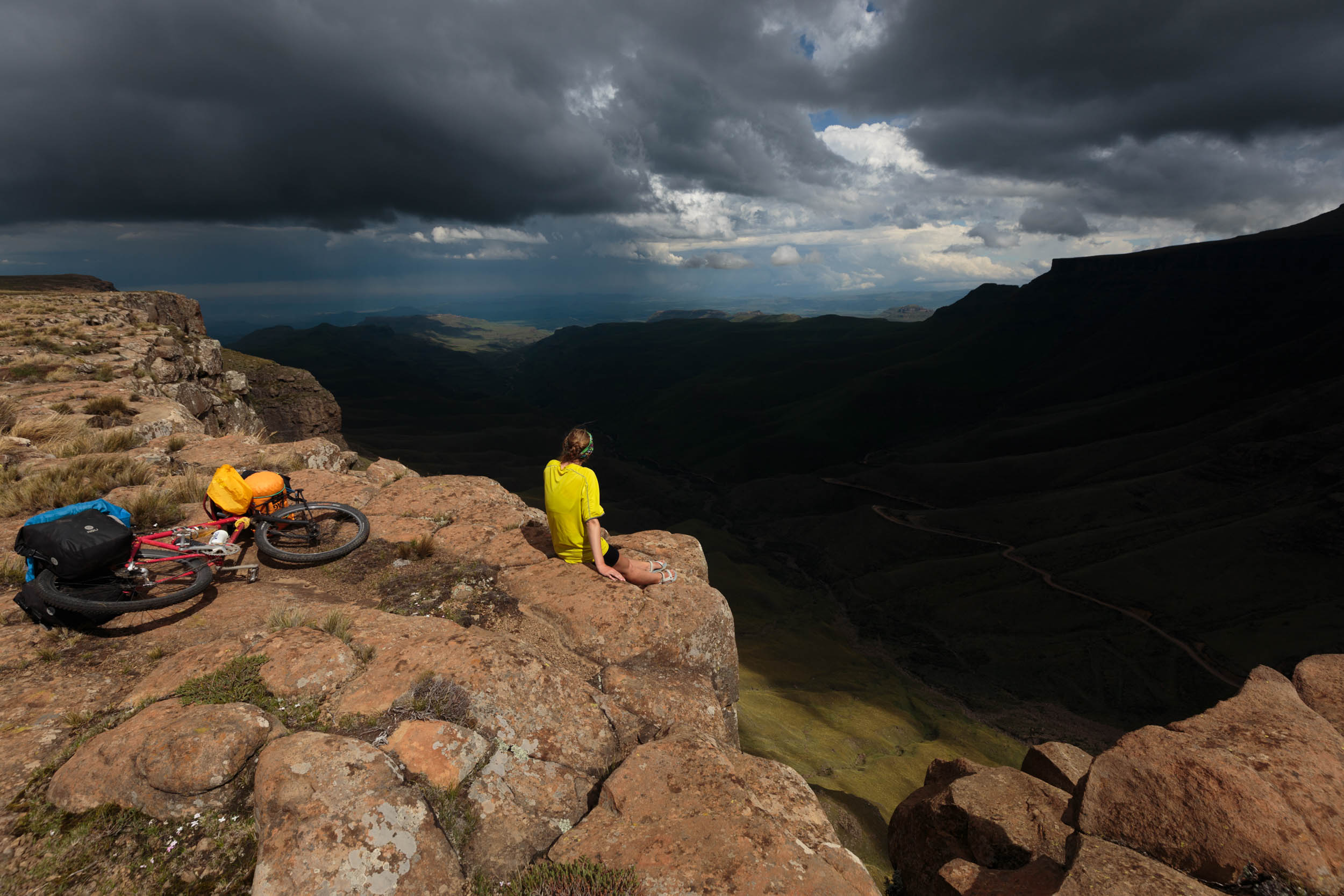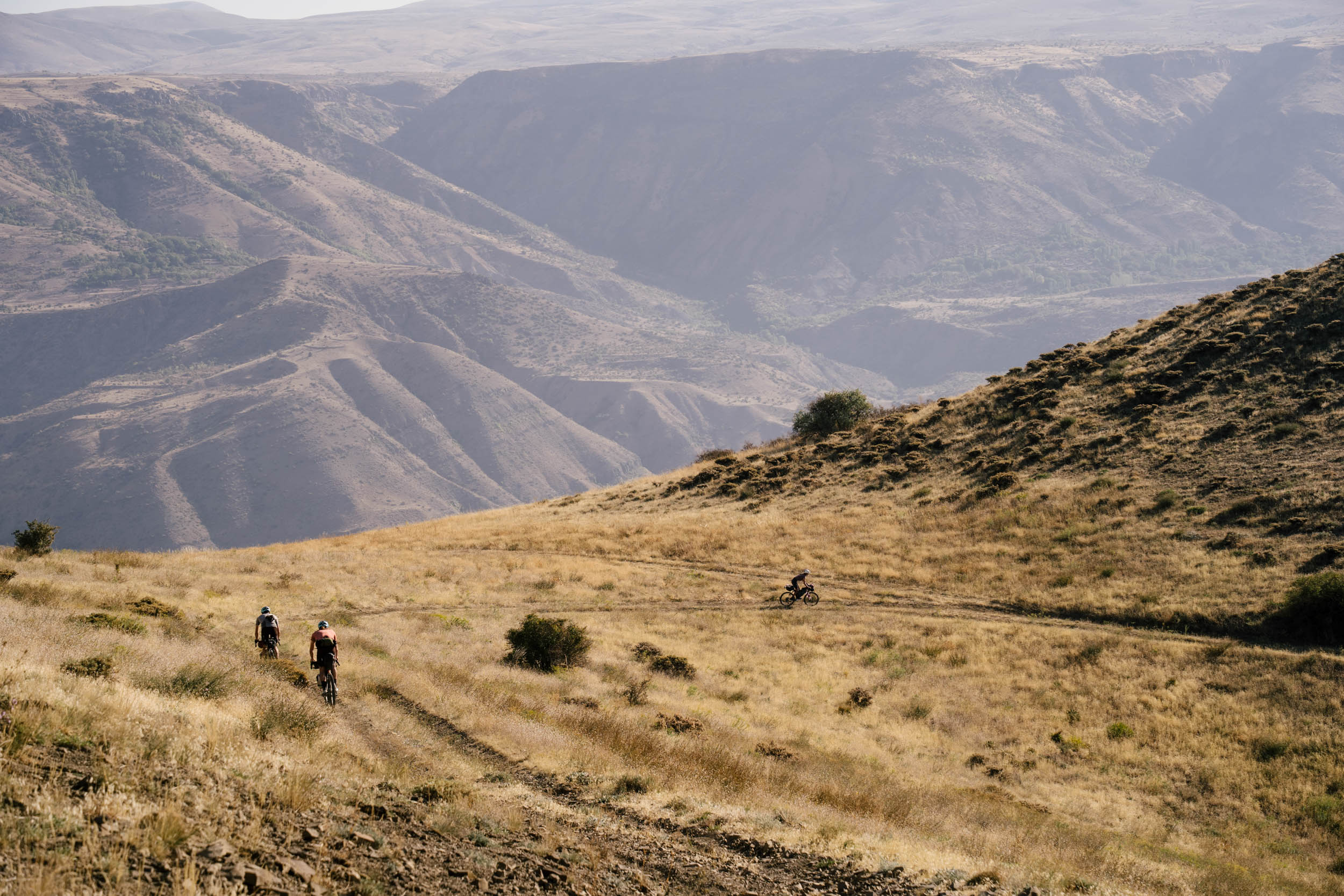Armenia: Caught in the Middle
Share This
Last fall, Johan Wahl and his partner Jana were finishing a bikepacking trip across Armenia when clashes with neighboring Azerbaijan broke out, sending their ride into an emotional and logistical tailspin. Find their story of navigating the duality of having formed a strong connection with the Armenian people and knowing it wasn’t their place to be here…
Words and photos by Johan Wahl (@a.whale.away)
It’d been over an hour since we left the city, and we’d been on the main road the whole time. Many cars had passed us already, and none of them showed any reaction. Then, suddenly, a man waved frantically out of his car window as he sped past in the opposite direction. “What was that all about?” I wondered.
A minute later, another car came speeding down the hill. This one stopped abruptly, and the driver shouted through his open window. He repeated a single word three or four times, increasing the volume and urgency in his voice each time. Before we could respond, he sped off again, wheels screeching on the asphalt as he accelerated. I had no idea what he said or even what language it was in, but it sounded something like, “baah-teh-raz.”
I took out my phone and tried typing in an Armenian word that emulated those sounds into Google Translate. There was no match for the word I typed. I tried setting the language to Russian but didn’t get anything there either. I needed internet access to try the online voice translation feature. I scanned the horizon for a cell tower. Without any in sight, I took my phone off flight mode just in case. We were in luck. Three bars appeared on my phone’s signal indicator, and seconds later, the H+ sign. Internet coverage. Before I could even navigate back to the Translate app, a bunch of notifications popped up. One particular Whatsapp message preview caught my attention. It was from a relative back home. “Are you guys safe? I saw on the…”
I pressed the notification to load the rest of the message. It read: “I saw on the news that war broke out between Armenia and Azerbaijan. I hope you guys aren’t anywhere near the border.” I froze and looked at Jana, saying nothing, then turned to face the Azerbaijani border, which was just 10 kilometres away from us. For the first time, I noticed the smoke rising from the hills. Suddenly, I understood what the loud noises we’d been hearing all morning were. We assumed they were just construction blasting and paid no attention. “We’re safe,” I replied, betraying the sudden surge of panic I felt.
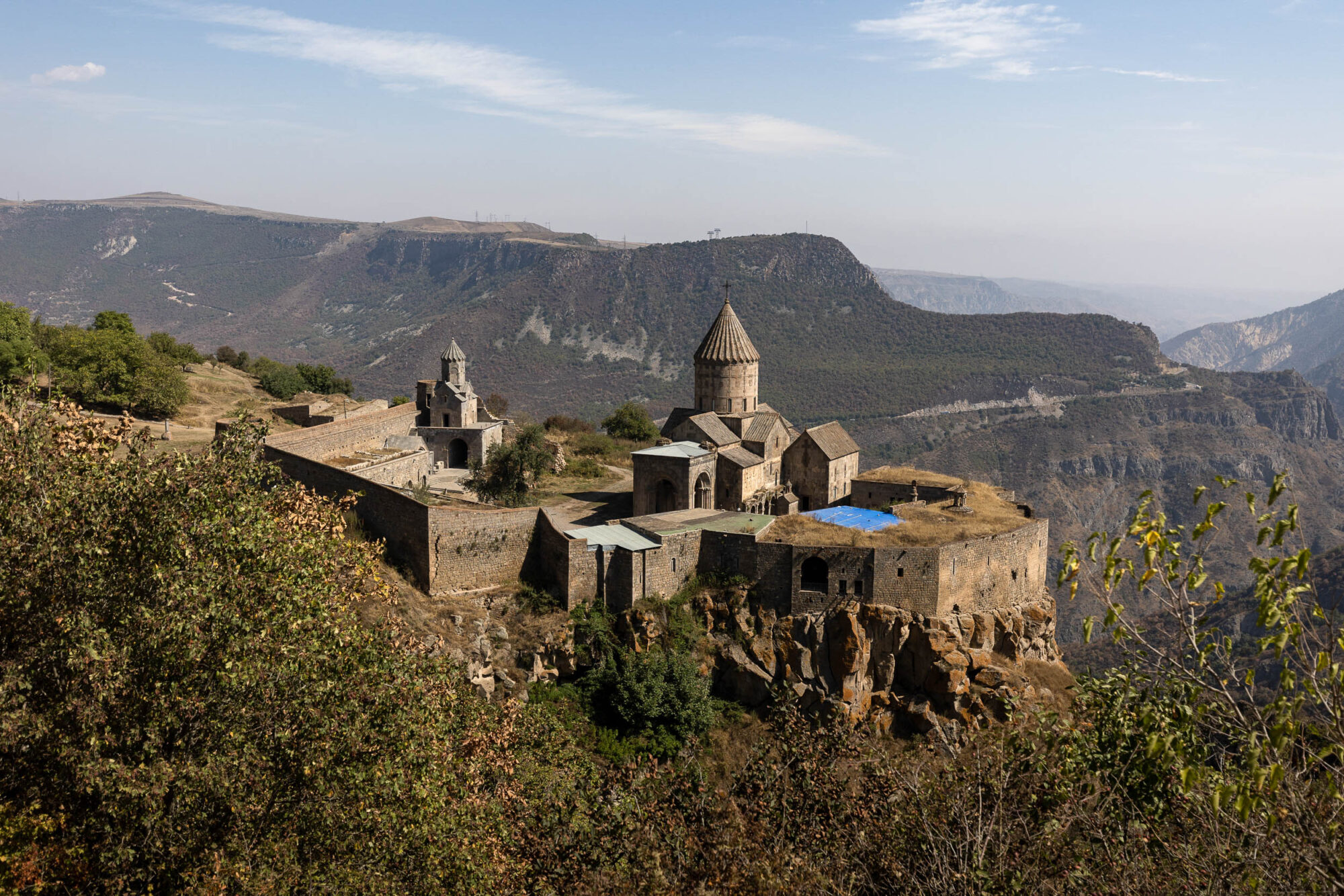
We had been touring through Armenia for two weeks. During that time, nothing had eluded to the news we had just received. We’d learnt about the devastating fighting with Azerbaijan in 2020, but our understanding was that a peace agreement had been in place since. No one had said or done anything to suggest the contrary. One day earlier, in fact, a soldier invited us into his surveillance office for coffee and fruits when we passed a nearby dam site. We had a genial and lengthy conversation with the young serviceman. He had every opportunity to warn us about the imminent conflict if he had known about it, and we believe he would have, but there was no mention of it.
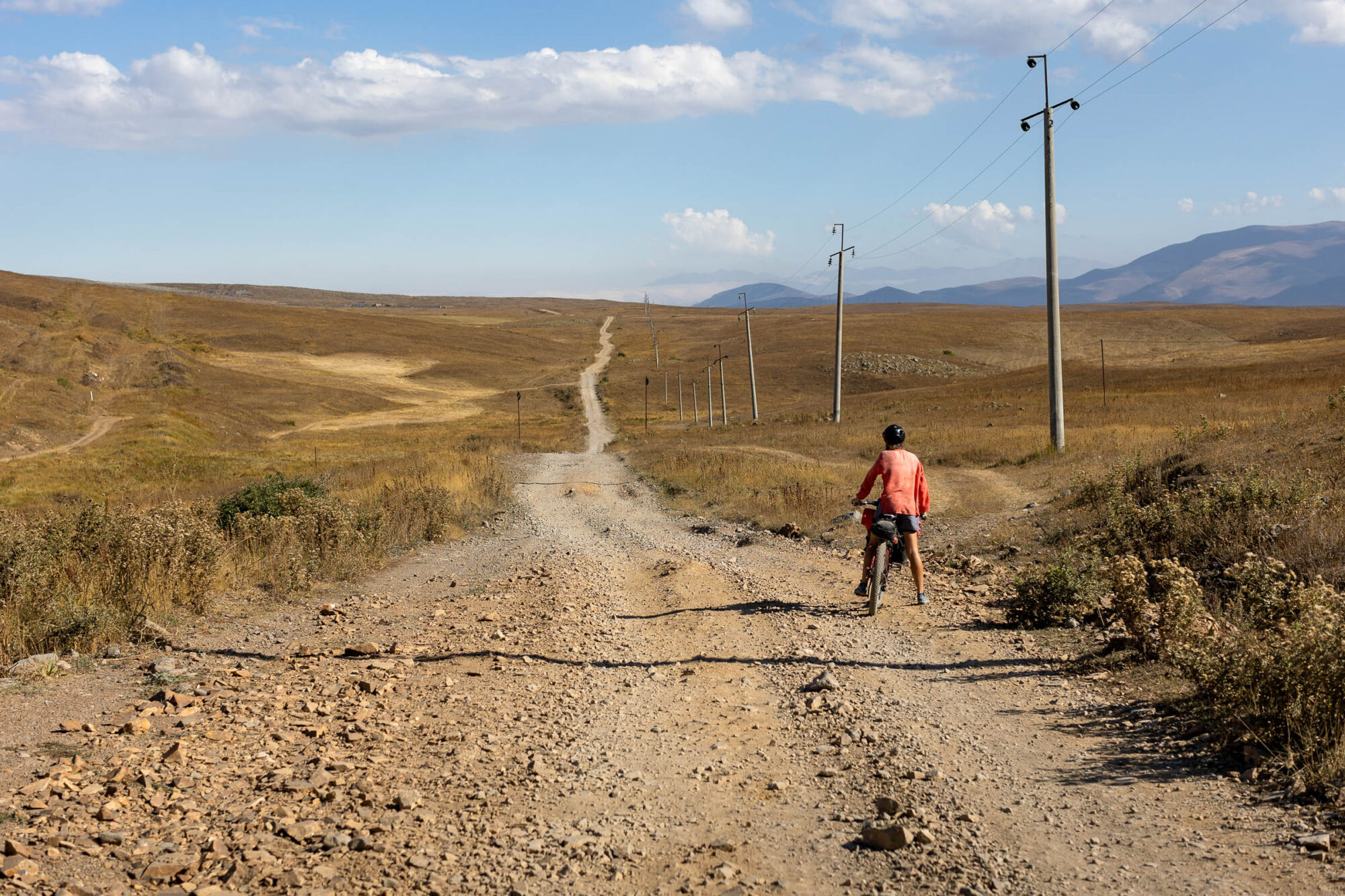
Welcome to Armenia!
When we first arrived in Armenia to ride the Caucasus Crossing route, we’d made a slight miscalculation. We’d assumed, with absolute certainty, that we would find an ATM and some small stores at the border but didn’t find either. As a result, we entered the country without any local cash. Plus, without a local SIM card or any knowledge of the Armenian language, we had no means of communication. We knew the first stretch would be through a rural area. Local cash and a basic vocabulary were vital. With nothing but a few bite-sized snacks left in our bags, we felt unnerved and utterly unequipped. We berated ourselves for not coming in better prepared, but our worries would be short-lived.
The first little town we entered was hushed and sleepy. It seemed unlikely that we’d find an ATM or card terminal. We doubted there’d even be a shop at all, but our hopes were lifted when we caught sight of some mobile network and cold beverage posters. The signs were posted on an unassuming little building, barely noticeable behind the yellow gas piping that lined the street.
We peered through the window to confirm that it was a shop. Inside were three girls, the oldest perhaps no more than 11 or 12 years old. They were there to keep an eye on things while their parents were away, we presumed. Using hand gestures and slow English, we asked for an ATM or card terminal. “No. Sorry,” the oldest girl said in English, completely surprising us. She blushed and the other two chuckled at her attempt to speak with the foreigners. “Oh, you speak English?” we asked excitedly. “No. Sorry,” she repeated, impressing on us that those were the only two words she knew. The other two burst into laughter.
Back outside, we took stock of what food was in our bags. There wasn’t much, and we were considering whether we should eat our remaining apples when the girls came out to us and gave each of us a piece of bread with cheese and a packet of sweets, completely out of the blue. It was a sincere and surprising gift. These were just kids, and no one had nudged them to help us. We hadn’t asked for any help. It was simply an impulse and was another example of the selfless generosity that had been a theme for us from the beginning.
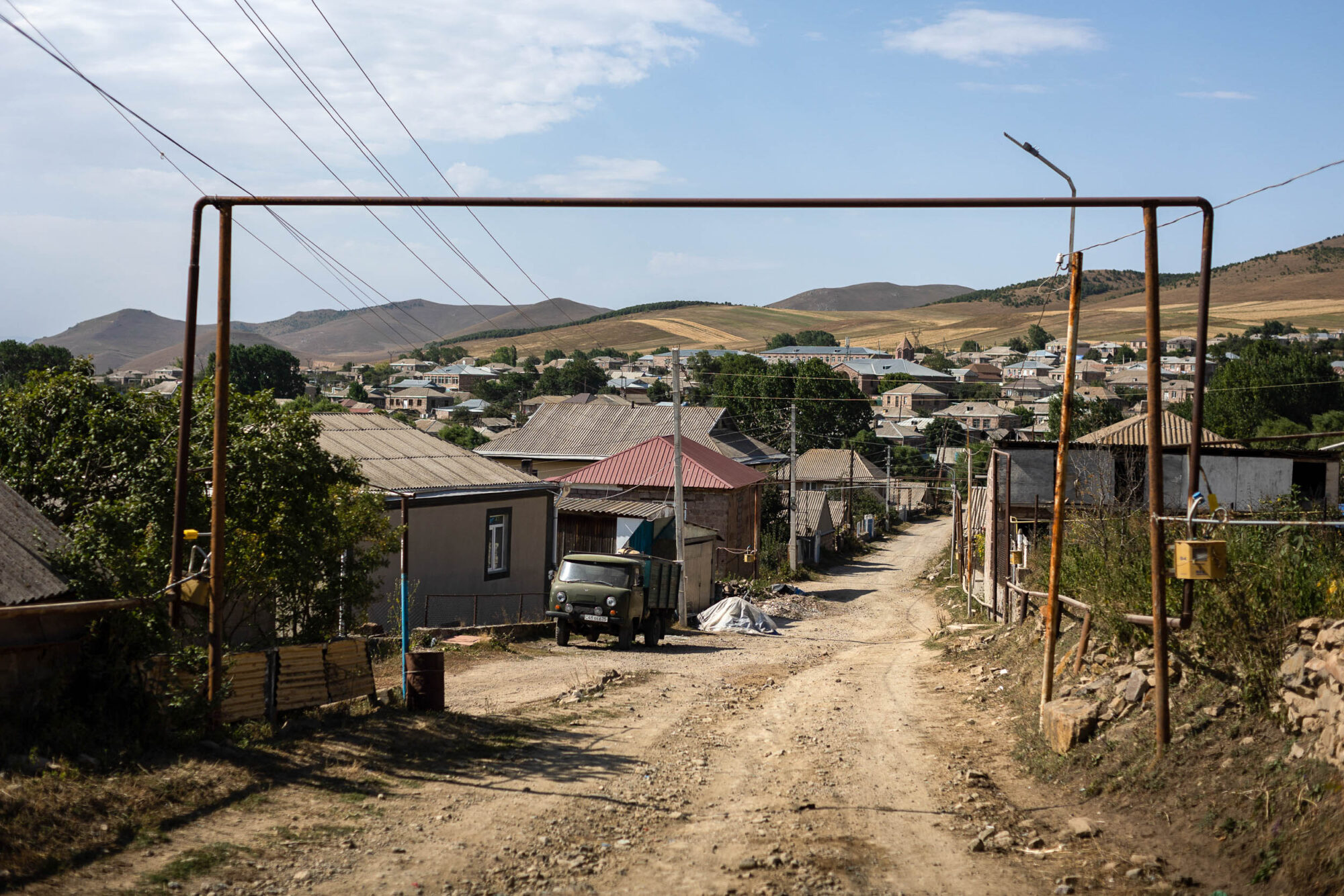
The next village had a shop, too, but no electronic payment facilities. The shopkeeper, a middle aged woman with a stoic expression, seemed to grasp our predicament when we enquired. “Nyet,” she said sternly in Russian, but then quickly proceeded to go around the shop picking items off the shelves: chocolate bars, cold drinks, pastries, milk, even mint chewing gums.
She handed us the bag of groceries and smiled timidly while she gestured that we should take it. She did not want any money in return. I was completely taken aback. She gave us way more than we needed, all at the expense of her business. As before, we hadn’t asked for anything. I felt ashamed and elated at the same time, almost unable to process what had just happened. We stayed and chatted for a while, and when we left, she called us back, holding out more fresh fruits. What a welcome!
We experienced Armenia as a people-country. The riding and scenery are fantastic, but it’s the beautiful interactions with people and their unthinkable generosity that stood out the most. The shopkeeper who filled the bag for us was merely the tip of the iceberg. A Yazidi family hosted us at their shepherd camp one night. They prepared a feast for us. Women from all of the neighbouring camps were called in to help with the preparations. It was a sight to behold. What’s more, before bedtime, the women went to great lengths to heat water outside in the cold just so Jana could wash her feet in warm water, something they insisted on. Life on Armenia’s high plateau is arduous. Each day brims with work. Yet, this family saw it fit to delay their chores for us. They went above and beyond to honour us as guests, insisting that it is customary to do so.
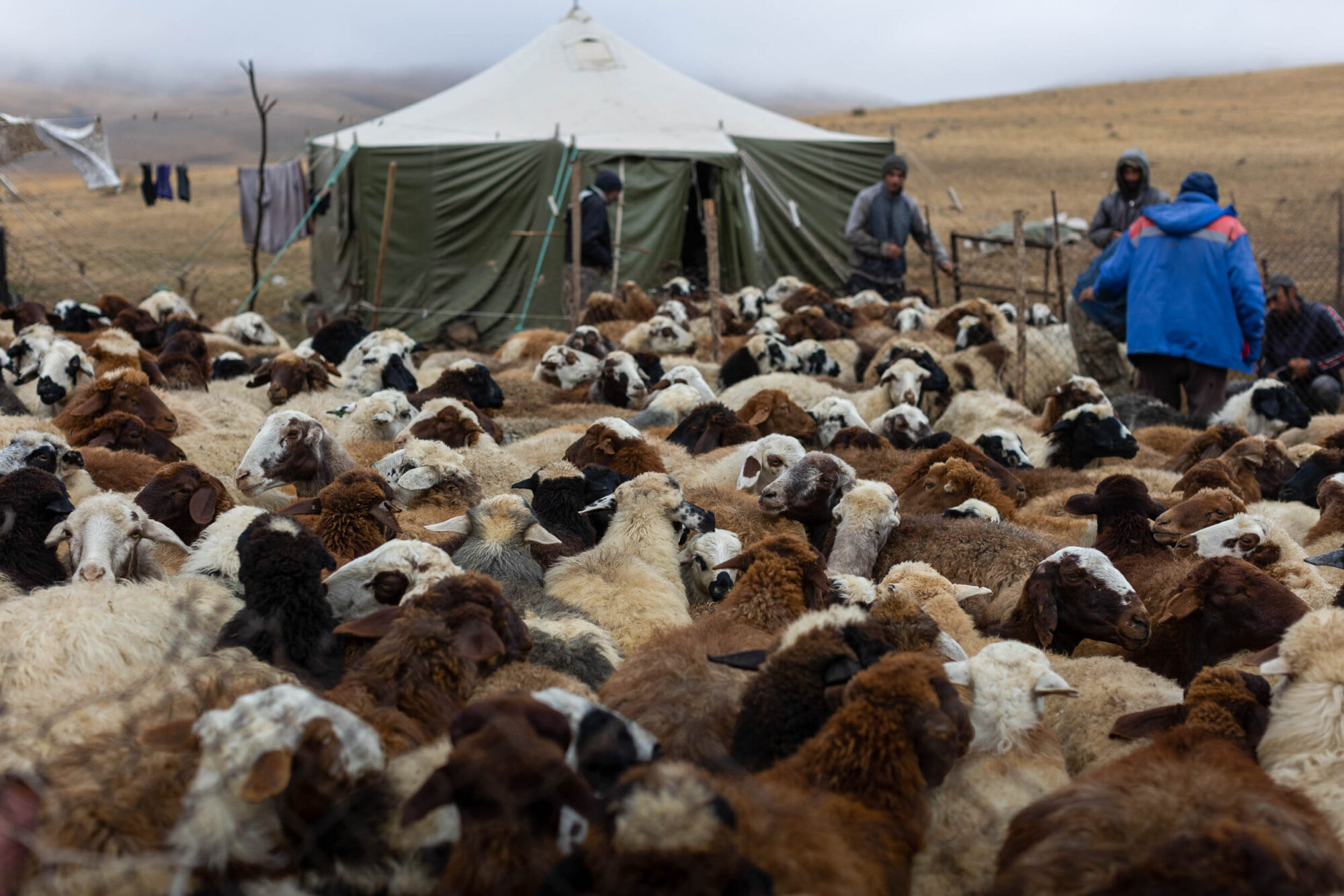
Perhaps the most moving of all our encounters was when we made it down to what seemed to be an abandoned village after a challenging hike-a-bike. It was scorching hot, and we were completely spent from the efforts of the day. We should have wanted to stop and cool off, but a chilling silence and eerie atmosphere propelled us forward. Feeling a bit spooked and uneasy, we dismounted and pushed our bikes past the ruined homes as silently as we could. We were startled by the sudden sound of a dog barking. Camouflaged in dust, it lay flat on its side, only half lifting its head to muster a bark at us. A door squeaked open, and an elderly man appeared. He shushed the dog with a soft whistle and waved us closer, smiling warmly.
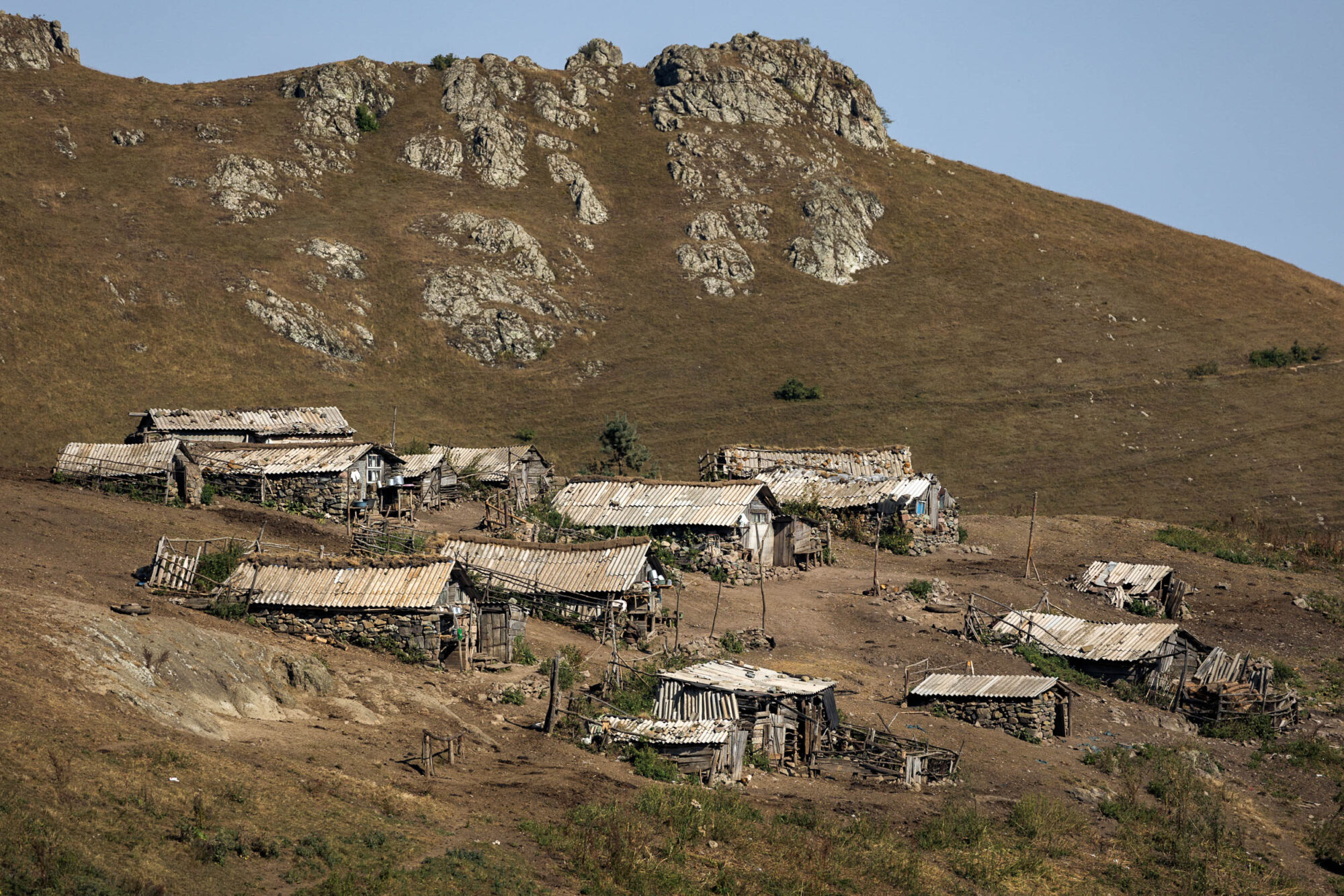
The man looked weathered and worn. His face was deeply wrinkled, showing signs of a hard life. We entered his home and were promptly seated. I sat on a turned-over fruit crate and Jana on the only chair, a worn-through plastic garden chair. The man sat down on the floor next to me, suppressing a groan as he achingly situated himself. His wife came in briefly to welcome us, firmly shaking our hands with both of hers, then disappeared to prepare coffee. She showed the same signs of ageing as her husband and moved slowly. It was stuffy and hot inside, and we were saddened by its modesty. It was a meagre building that had clearly taken a beating over time. It had only the bare essentials, and my impression was that this couple had lived a life of incredible hardship.
Even though we’re not coffee drinkers, we were parched, and we delighted in the strong brew. We also appreciated what it symbolised. Coffee is a necessity in any Armenian household, but my intuition was telling me that it was a luxury to our hosts. Next, the woman brought out a stack of sweet, fresh flatbreads that she’d baked that morning. It was a heartfelt token of generosity and exactly the nourishment we needed. The woman looked on with a warm and happy expression as we devoured a couple of them. She then wrapped the rest of the batch in a plastic bag and insisted that we take it all with us. It was a massive offering, and I was astounded by the selflessness of it. We refused adamantly, but they wouldn’t let us leave without taking at least half of it.
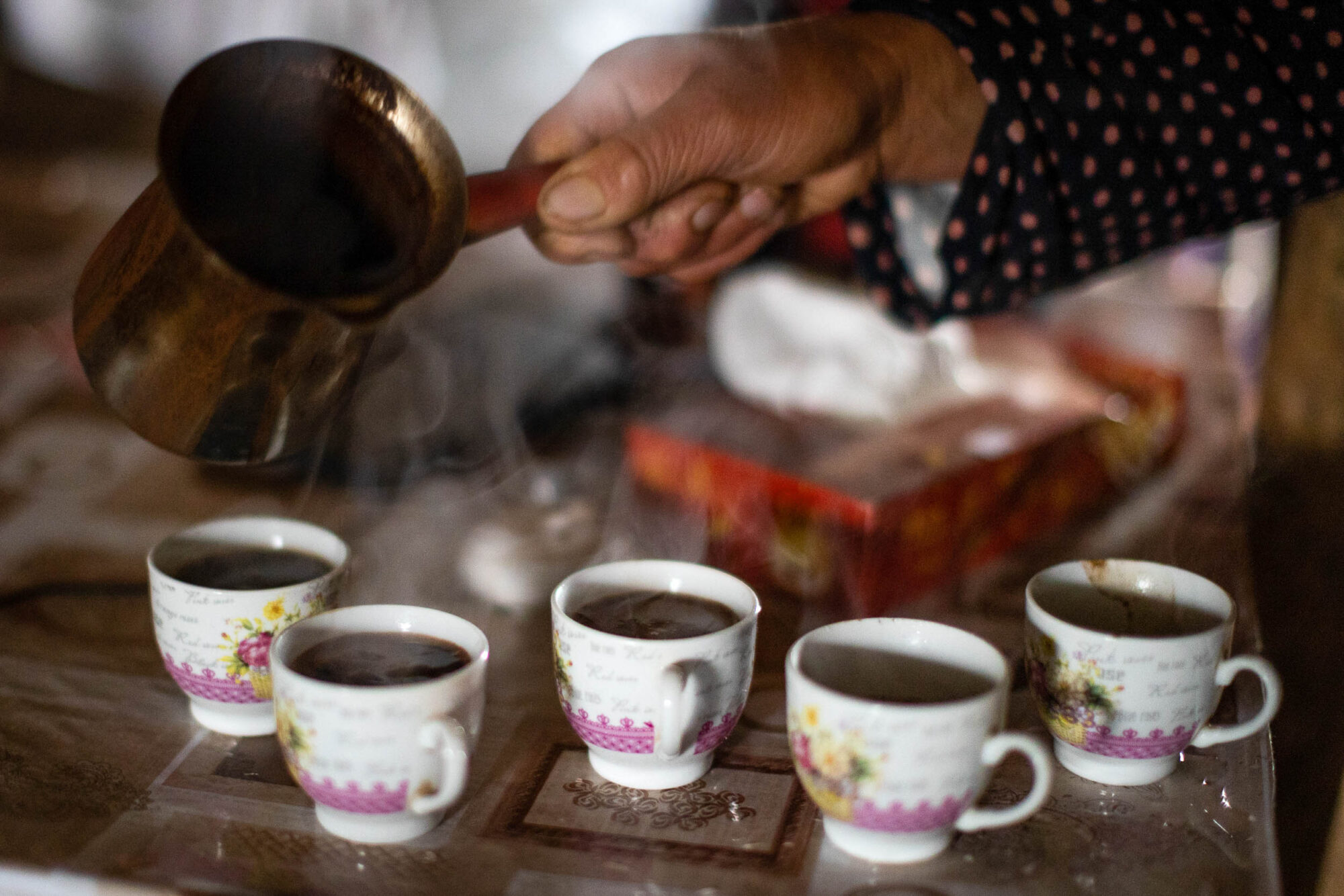
The bikepacking itself was overshadowed by the incredible encounters we had with people in Armenia, but it can’t be left unsaid that the route really is spectacular. It takes you on a true backroad tour of the country to places that can only be reached on foot or two wheels. Or, of course, in a Lada. The route is tough but beautiful. There was one particular section, a traverse of the Geghama Mountains, which gets my vote as one of the most picturesque places to cycle, anywhere. Overall, we loved the route and felt totally absorbed in the experience, and we were naturally distraught when we suddenly received the news about the clashes.
An Abrupt End
I finally voiced “Baah-teh-raz” into my phone’s microphone. Google Translate recognised it as the Armenian word, Paterazm, which means war. My eyes were fixed on that word, my mind adrift, when another car approached. The driver laid heavily on the horn, shaking me out of my trance. I made brief eye contact with the passenger, who, in passing, gestured machine gun fire with his arms. An ambulance followed, a white soviet UAZ 452 “breadloaf” with a faded red cross on the side. The medic, unlike the civilian driver before him, seemed indifferent to the two tourists on their bicycles.
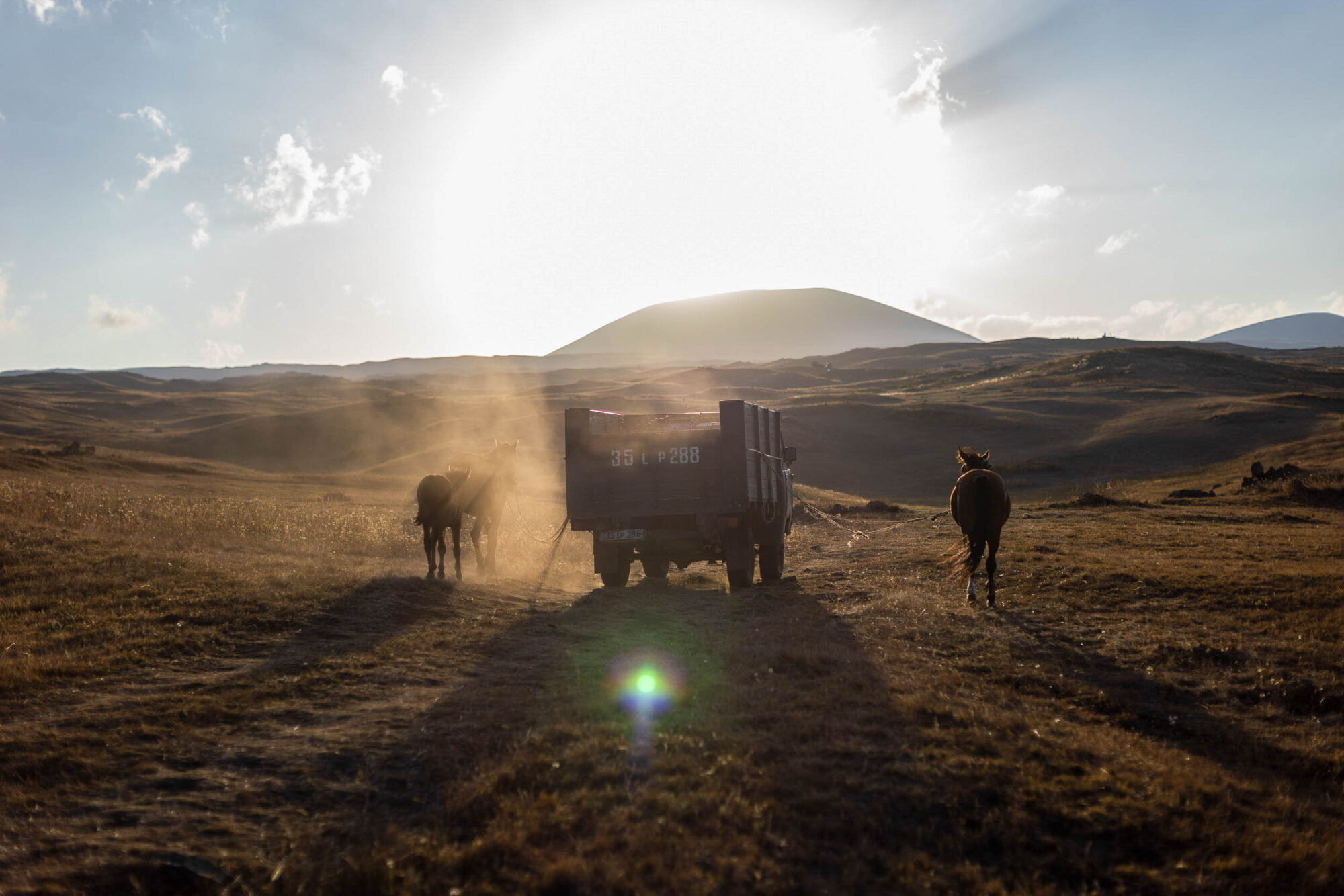
Why were only some people reacting and others not? I felt an acute urgency to understand what was going on. Why did nobody mention anything to us in the morning before we left the guesthouse? How could we be left to cycle unwarned all morning, right towards where a war was allegedly taking place? What the hell was going on? We waved at the next car, asking the driver to stop. When he pulled over, we tried to get information, but he only repeated what we already knew: “Paterazm!” It was impossible to gather anything else. The man was frantic. He didn’t want us to continue up the road. He crossed his arms firmly.
We were starting to panic. We felt unsafe and overcome by the horror that we could be caught in the middle of something so tragic. Moreover, the situation was confusing. Jana and I broke into a fierce argument about what to do. We were torn between turning around or pushing onwards. We knew we had to get away from danger, but we had so little clarity on what the situation really was. Plus, there was more to consider. We felt pressure to reach Iran without delay. We feared that it could have a knee-jerk reaction to the news and shut its borders any moment, and our Armenian visa was expiring soon. We went back and forth, mulling over various scenarios and logistics, but logically, all that made sense was to return to the city where we had come from in the morning. At least we’d be able to get more information there.
In town, things seemed strangely normal. The first person we successfully entered into a conversation with was a pharmacist. We couldn’t track down anyone of higher authority for news. He explained, from what I could gather, that he himself didn’t yet know the facts. It might be a short clash or the start of something worse. Nobody was sure. We searched for more news online, but the reports were contradicting, and it seemed ridiculous to rely on international media to explain to us what was going on right in front of us.
After more frustrating questioning and mistranslations, we landed up at the lobby of an upmarket hotel. The receptionist spoke in fluent English, confirming that there had been clashes since midnight. The noises we heard were artillery shelling, and the road ahead, the main route to Iran, was most likely blocked. She was certain that no taxi driver would dare take us in that direction. “The most volatile area,” she said, “is just outside of town.”
I showed the woman our route map. Not far after the spot where we had turned around earlier, there was an exit onto a small village road leading to Tatev. She recognized the road, saying that her childhood home is in a village there. “That road is closed,” she said. “It’s been closed for several months already. It’s under construction, but with bicycles, you should be able to get through. If you make it to Tatev, it should be possible to reach Iran.” The question was whether or not we could safely reach the village road, having to travel through the affected area in order to get there.
We felt like we needed to act. The blasting sounds had quieted down over the past hour. We had a chance, we thought, but heading right towards where we knew there were armed clashes taking place felt wrong. We made the decision to move forward, remaining on high alert. If there were any signs of objective danger, we would turn around straight away. That was the plan. We relied, naively perhaps, on the assumption that the military would prevent members of the public–not to mention tourists–from entering any area that presented immediate danger.
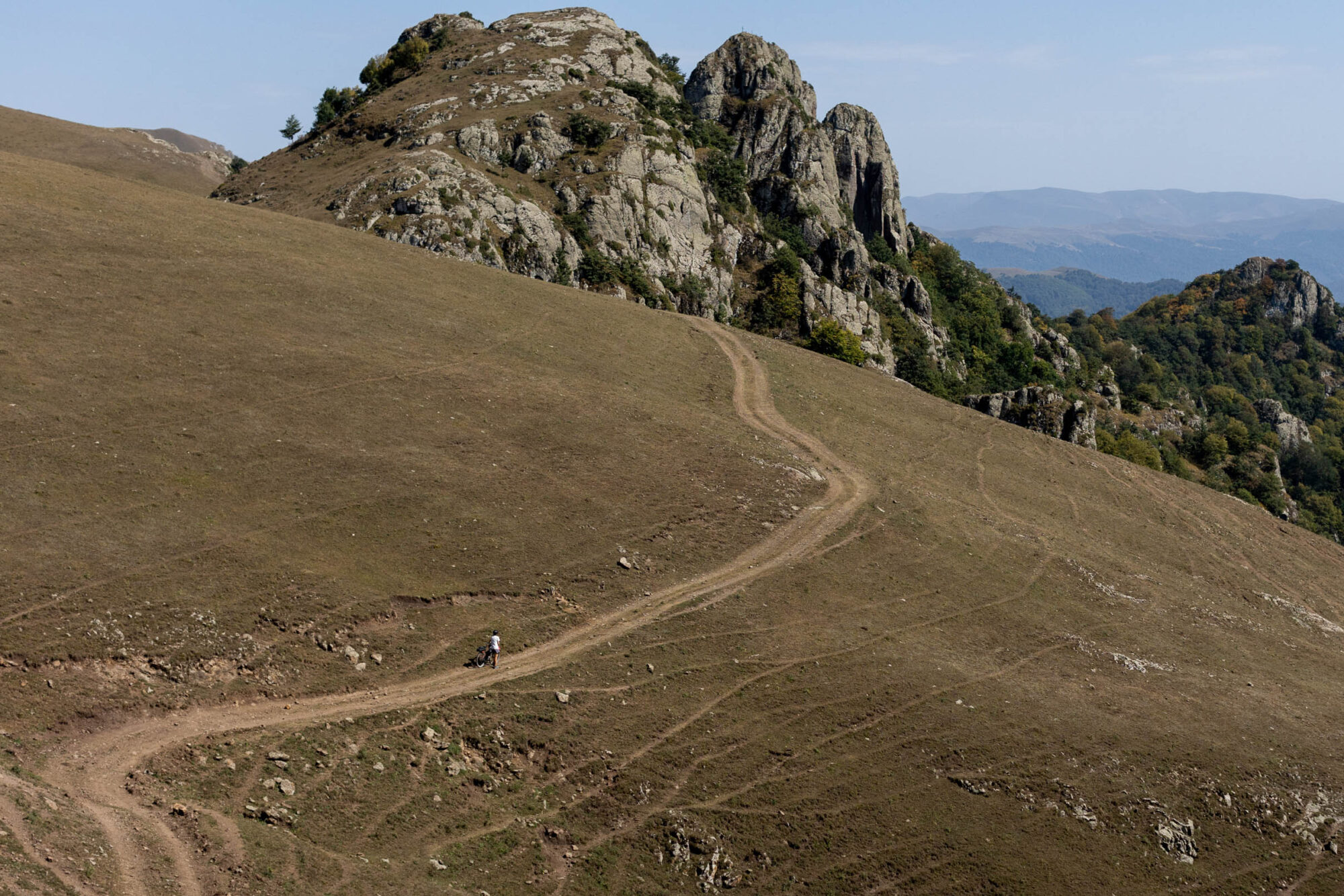
Fueled by nerves, we reached our previous high point in no time. The blasting was still quiet, but the smoke up ahead had intensified. We reminded each other that we would turn around if we felt like we were in danger. Ahead of us was some activity: soldiers, heavy weaponry, sandbag barriers, ammunition stockpiles, and a variety of old Soviet military vehicles. Our optimism evaporated when we saw it all. It looked like the end of the road for us.
Frustratingly, we were only a kilometre or two away from the village road turn off. A pair of soldiers nearest to the road was sorting through food and aid supplies that had presumably been dropped off by members of the public. We approached them and gestured to ask them, almost rhetorically, if the area was safe, showing a questioning thumbs up. They replied, to my surprise, with positive thumbs up, to say: “Yes, it’s safe.”
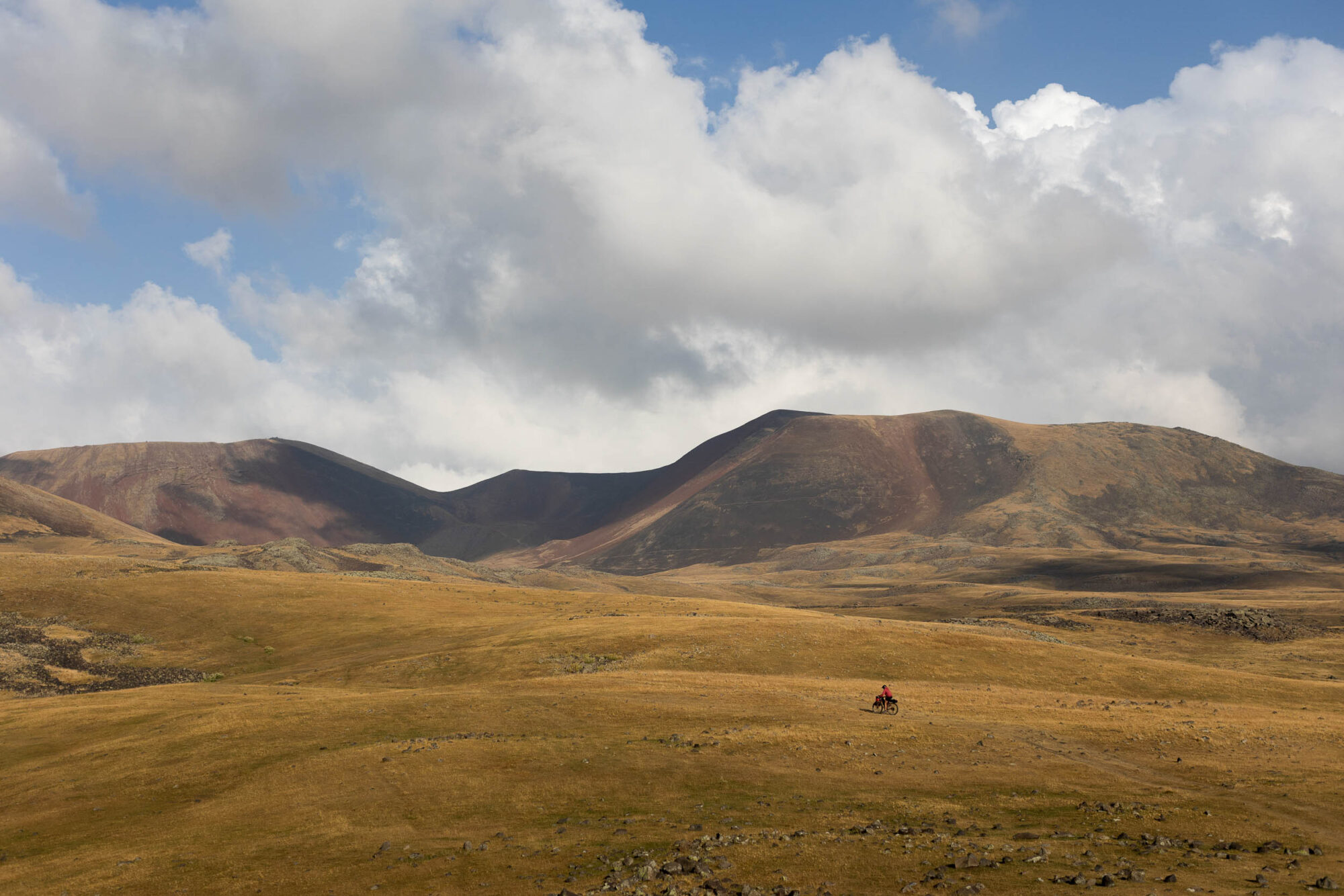
“It is?” I thought doubtfully. I gestured to ask if we may pass, pointing and waving a straightened arm forward. They replied, again, surprisingly, with a positive thumbs up. “Really?” I doubted again, looking at the dense cloud of black smoke up ahead. “Okay, then,” I thought, “Thanks,” and I continued pedalling. Jana followed me hesitantly. I greeted the soldiers with friendly waves as we passed right through the assembly. There were some 20 artillery guns aimed at the border and about 100 armed troops. Most of them didn’t seem to even notice us, and those who did smiled and waved back, completely unperturbed. “This is how dumb tourists end up dead or in prison,” Jana snarled at me. Indeed, I’d never felt more stupid. But most of all, I was confused.
There was one last obstacle between us and the village road. The mountain side was burning. Why, I don’t know, but the road went straight through a burnt section. Some small flames were still sizzling, and dense smoke covered the road. Thankfully, it was downhill, so we held our breath and sped through. I have never seen Jana go that fast without pulling her brakes.
We were shaking with adrenaline when, with great relief, we finally turned off onto the village road. It had a nasty little climb right off the bat. We wasted no time and immediately got off our bikes to push through the first steep section. We were just getting started when the blasting returned. It sounded terrifyingly close, and every blast sent shivers down my spine. We were too scared to even think of what was going on behind us. We just pushed for dear life.
We kept hearing the blasts for hours, until eventually we were too far away. As expected, the village road was under construction and completely deserted. We had no problem navigating it on our bicycles and reached Tatev by nightfall. In Tatev, the atmosphere was calm but sombre as young men in every household were preparing to head to the battlefront. For many of them, it would not be the first time. The tragic fighting of the 2020 war was fresh in their memories, and it filled the atmosphere. It was not the time to be tourists in Armenia. We had to leave.
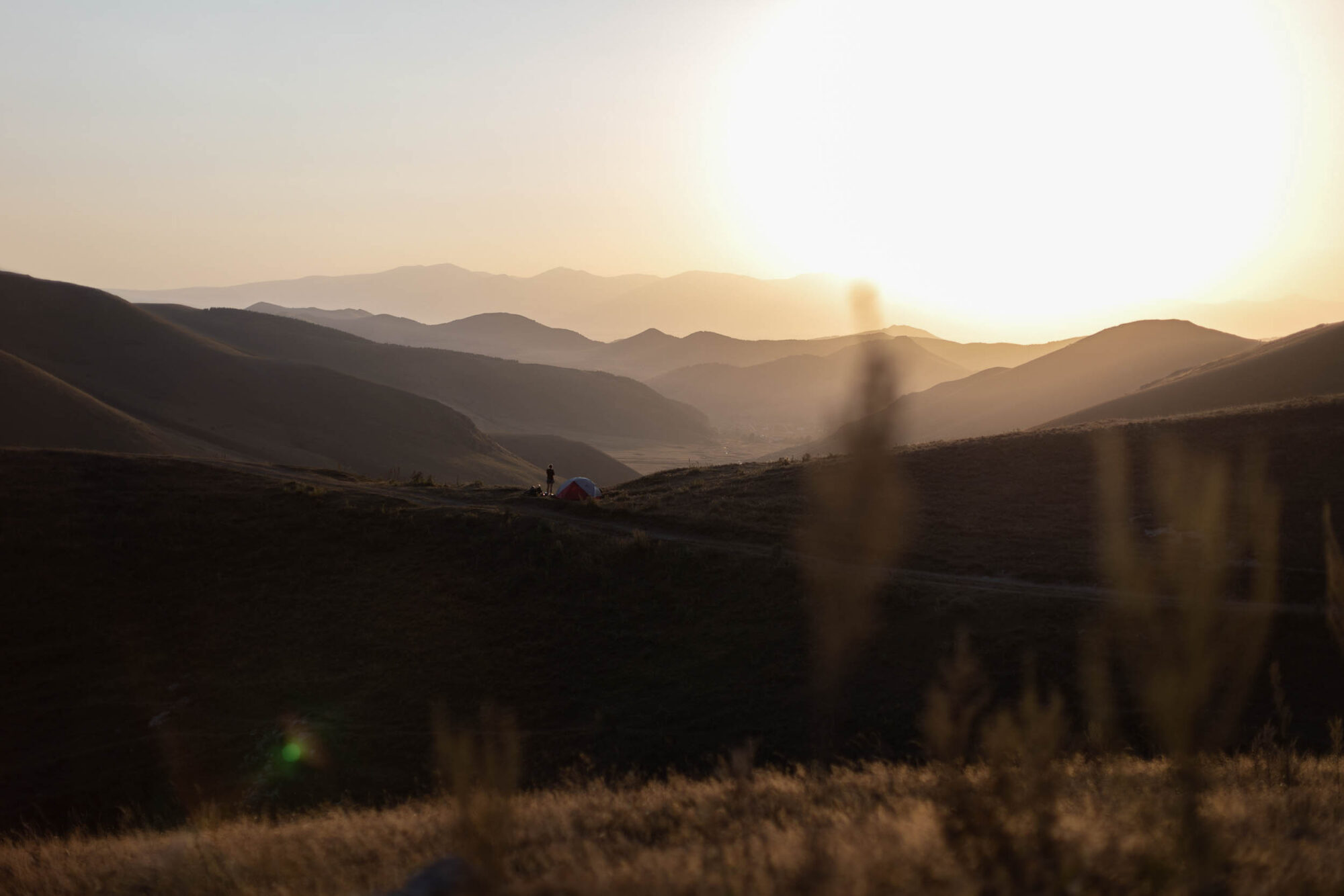
The next day, we arrived at the Iranian border in an old Lada Riva with our bikes tied haphazardly to the roof. Disappointingly, we didn’t finish the route we’d set out to ride, but it didn’t feel right to linger. Armenia was going through a time of great difficulty and uncertainty, and we ended up right in the middle of it. It was not our place to be. We felt relieved to make it out unscathed, but saddened by what the people in the region were facing.
Despite our turbulent exit from Armenia, we were excited to be entering Iran, a country we had long dreamed of visiting. Moreover, it was reassuring to cross into a country which, at the time, was perceivably more peaceful. Little did we know what was unfolding across the border.
Stay tuned for part three of this series, which will cover Johan and Jana’s time in Iran. If you missed it, be sure to check out part one from Georgia, which is linked below. Our Bikepackng Collective members can read part four from Turkey exclusively in the upcoming 10th edition of The Bikepacking Journal this summer.
Related Content
Make sure to dig into these related articles for more info...
Please keep the conversation civil, constructive, and inclusive, or your comment will be removed.




